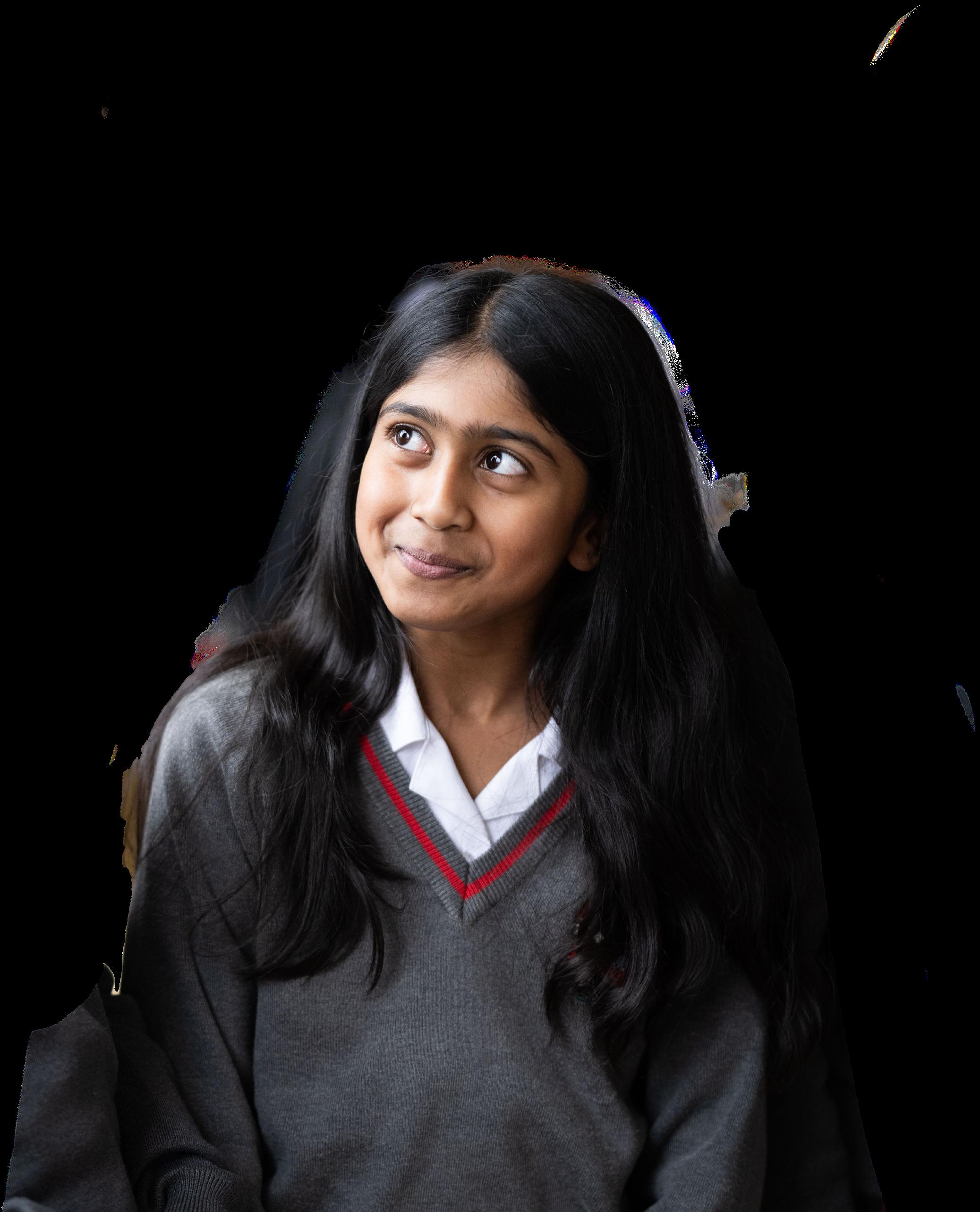
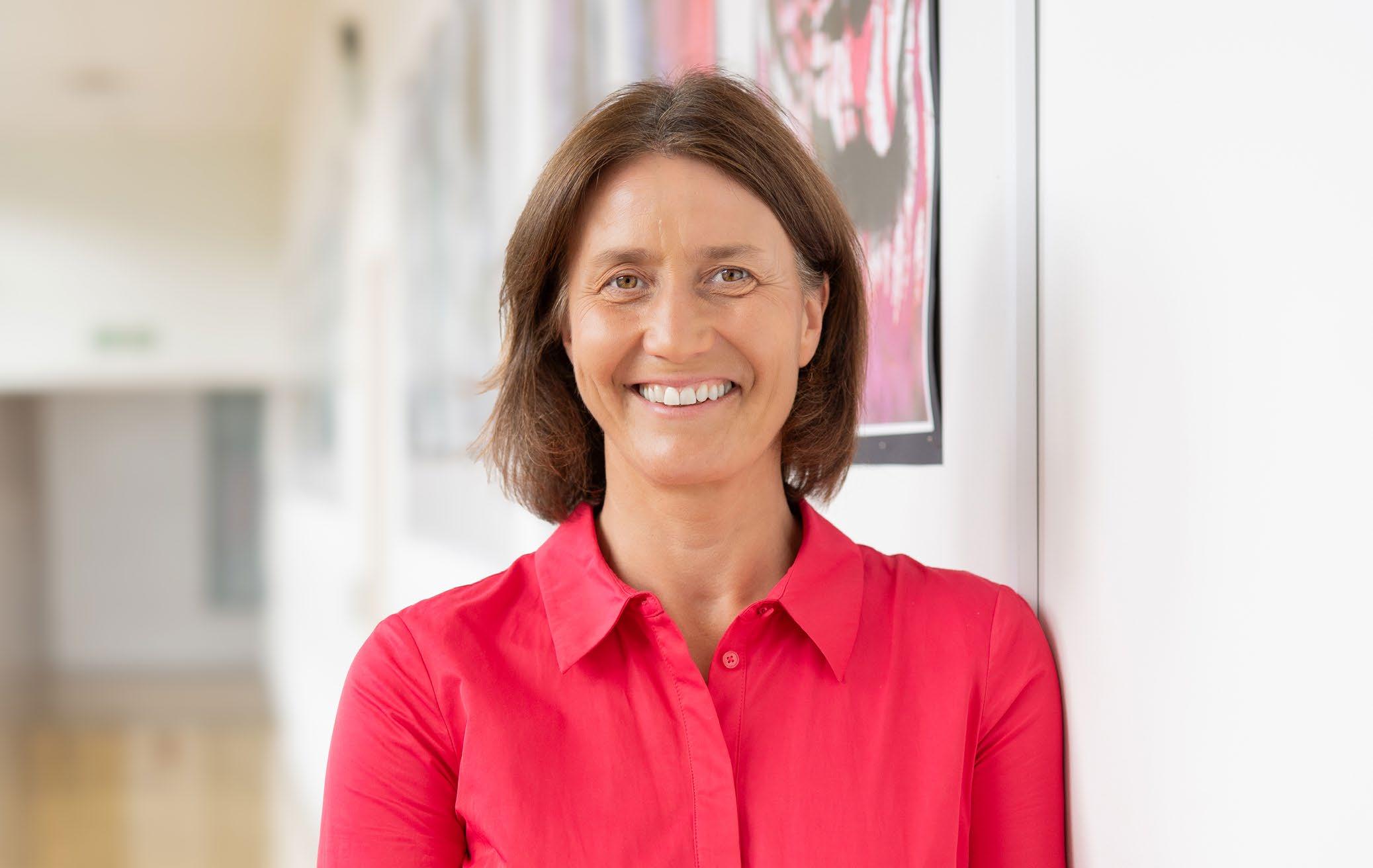



The breadth of subjects on offer during Middle School gives LEH pupils a brilliant foundation in learning and enables them to discover new areas of interest and inquiry. Our goal is to give our enthusiastic pupils an inspiring educational experience to develop their knowledge and understanding and, as they progress through this section of school, to identify particular areas of interest to help them make decisions about subjects to study at GCSE and beyond. With plenty of stretch and opportunity to take part in competitions, performances and academic trips outside of the classroom, together with a vast array of extra-curricular activities and clubs on offer, we are confident that our pupils will enjoy trying lots of new things and discovering their passions.
MRS COLE HEAD
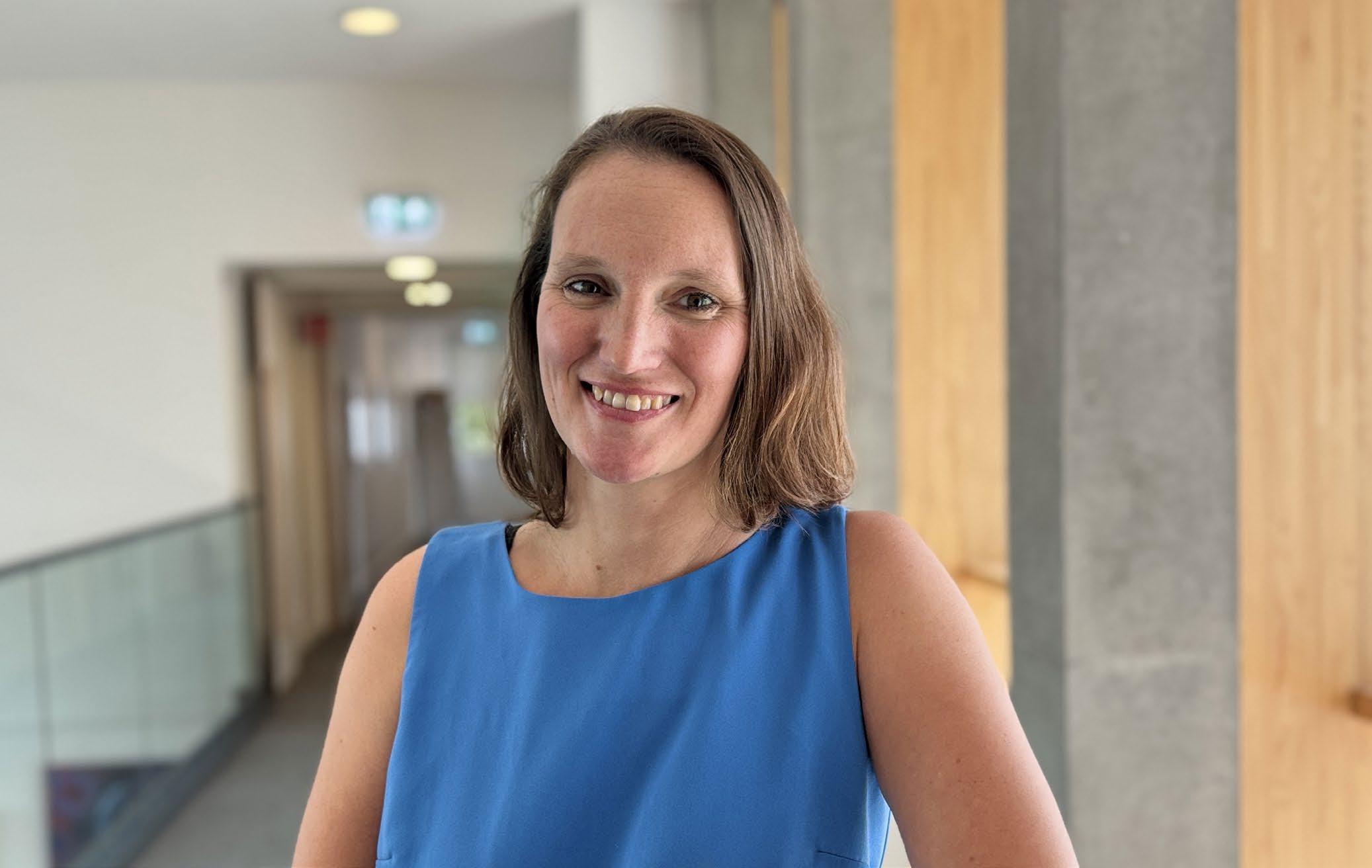
The Middle School at LEH aims to be a place of excitement and enthusiasm. We want to harness the energy that pupils arrive with and channel this into their love of study. The Middle School curriculum is designed to allow all pupils to explore a wide breadth of interests and to discover where their academic passions lie. Content is carefully selected to ensure students enjoy their lessons, while being challenged to succeed. We encourage mastery of each subject; venturing well beyond the confines of the National Curriculum. As time passes students will start to recognise their strengths and interests and therefore in Upper Four some agency is introduced, through a small number of options. This gives students more time to specialise in the areas that they really enjoy.
MISS REDMAN HEAD OF MIDDLE SCHOOL
The Middle School curriculum is a rich array of subjects. Delivered within an academic environment, the curriculum, celebrates achievement, recognises effort and encourages pupils to be resilient and courageous learners. It offers opportunities for all pupils to acquire a broad range of knowledge and skills with elements that are lingustic, mathematical, scientific, human and social, technological, physical and aesthetic and creative.
The table below shows what is studied in each year group:
* Options in Upper Four
1 General Science (a combination of Biology, Chemistry and Physics) is replaced by separate science subjects in Upper Four
2 Classical Civilisation becomes an option as an alternative to Latin in Upper Four
3 In Thirds-Lower Four pupils study two out of the three MFLs. In Upper Four they can take up Mandarin replacing one of their MFLs
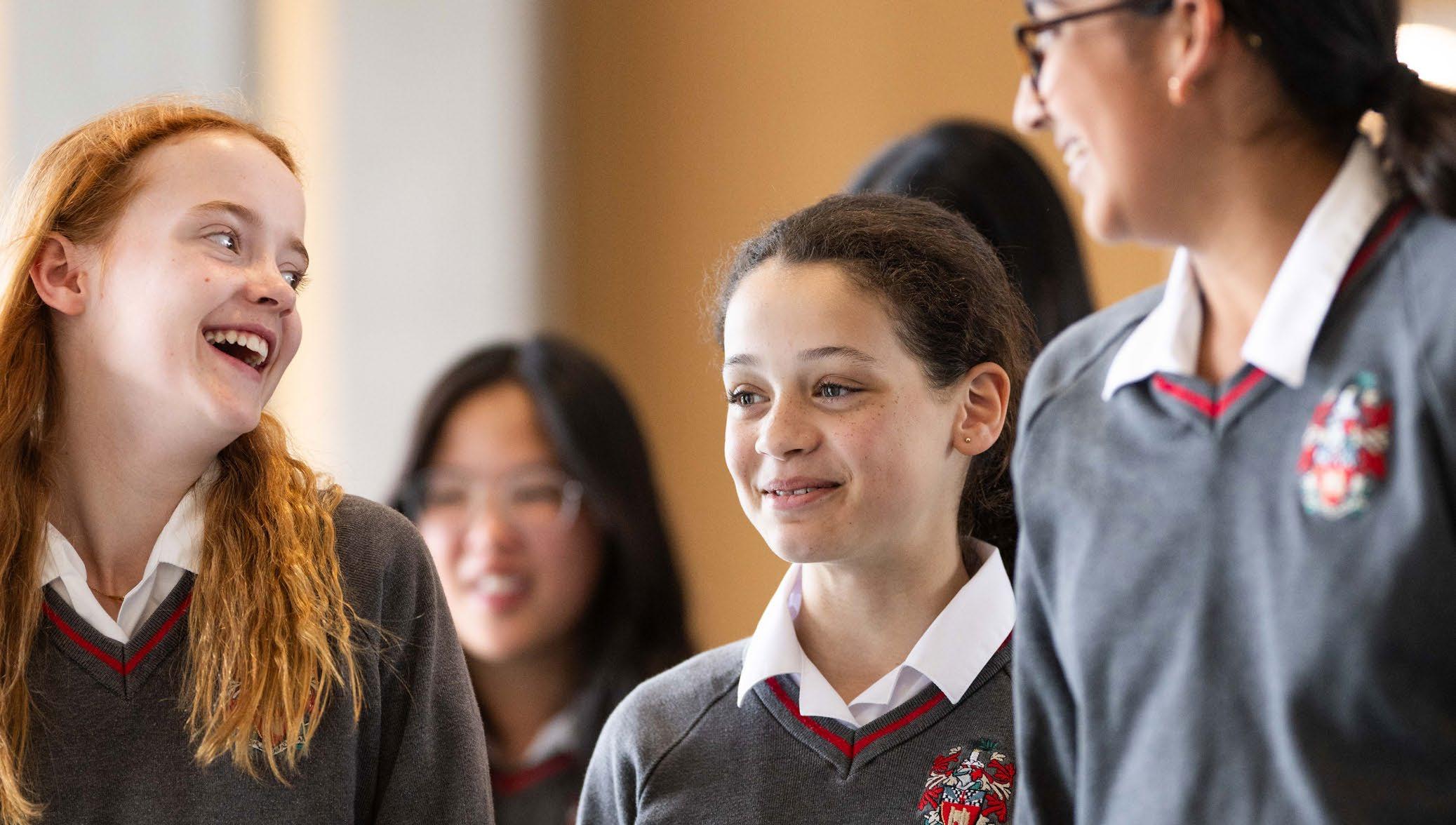
When pupils are in Lower Four they make some choices about subjects they wish to study the following year in Upper Four. If they make the decision to do a particular course in Upper Four, they do not have to continue with the course at GCSE.
Pupils choose a total of three subjects from the Creative and Technology subjects.
Creative Group 1 - pupils must choose at least one of these subjects:
• Art
• Drama
• Music.
Creative Group 2 – pupils may choose a maximum of two of these subjects:
• Food preparation and Nutrition
• Product Design
• Textiles.
In Lower Four, pupils study two Modern Foreign Languages. In Upper Four, one of these may be changed to Mandarin.
Pupils must choose between:
• Latin
• ‘Classics’ (a non-linguistic course about the Classical World).
Please note, pupils will not be able to do Latin GCSE without having studied the subject in Upper Four. The option of GCSE Classical Civilisation is available, but pupils do not need to study the Upper Four Classics course to be able to take this GCSE.
All pupils in Lower Four will have support when making decisions about subject choices for the year ahead.

Language and literature are core to everything we do as humans in terms of our communication, understanding and connection with the world around us. Being able to use spoken and written English with precision and accuracy is therefore pivotal, and even vital, in an ever-changing world. We believe our students must communicate in all forms with discernment and critically understand what is being conveyed to them in global contexts, and in a tolerant environment that permits the exchange of diverse ideas and opinions.
Pupils are taught in mixed ability form groups throughout the year. Pupils are taught and revise essential aspects of spelling, punctuation and grammar, but are encouraged to use and apply these skills in all contexts and in the variety of different forms and genres of writing they will explore. Although there is teacher autonomy to choose suitable and engaging material, pupils are taught agreed core texts throughout the school year, and beyond, that will include: Shakespeare’s comedy ‘A Midsummer Night’s Dream’, Dickens’ novella ‘A Christmas Carol’ and a selection of narrative ballad poetry. As well as studying these texts as pieces of literature and developing skills of appreciation and critical analysis, pupils will also be given opportunities to write both creatively and for specific transactional purposes such as letters, leaflets and diary entries, exploring aspects such as style, tone and register.
Pupils continue to be taught in mixed ability form groups throughout the year. This year, pupils will explore aspects of drama, prose and poetry from the selected core texts, which are: Shakespeare’s comedy ‘Twelfth Night’, Hill’s Gothic novella ‘The Woman in Black’ and Poe’s ‘Short Stories’. These form the core of a synoptic study of language and literature, as well as a selection of poetry in sonnet form. Pupils continue to be given termly practice at writing critically about pieces of literature, but there is also scope for more creative writing and transactional, non-fiction pieces that involve newspaper and magazine reports and feature articles, as well as speeches, exploring and honing stylistic conventions that purposefully match their intended audience and purpose.
Pupils are taught in mixed ability form groups throughout the year. Consolidating and building on the skills of the previous two years, in readiness for Language and Literature study at IGCSE, pupils will explore a choice of either Shakespeare’s ‘Othello’ or ‘Much Ado About Nothing’, a nineteenth-century novel by Jane Austen or Charlotte Brontë and a unit of work centred on War Poetry, fostering co-curricular links with the History Department and its annual Battlefields Tour with pupils. As well as studying these core texts and additional others, pupils will be writing regularly in more sustained fashion, developing critical and discursive essay skills, as well as revisiting many forms of transactional writing, as required by IGCSE examination specifications in future years.
Pupils are encouraged to read widely for pleasure. Not only are they given a single Library & Resources Centre (LRC) period per fortnight to this end as Thirds and Lower Four pupils, but staff and students across the Key Stage regularly discuss, share and celebrate what they are reading for pleasure and offer personal recommendations designed to inculcate a lifelong love of reading. This distinction is internationally recognised as an essential hallmark to all successful great thinking and critical insights. This has wideranging repercussions across the school curriculum and fosters the building of empathy, tolerance and inclusion.
It is the English Department’s aim to organise annual visits to the theatre for each year group either locally, in London’s West End and Stratford-Upon-Avon, as well as inviting touring practitioners to deliver stage productions at LEH. Thirds raise money for the School’s elected annual charity via a competitive Spellathon and each year events are planned around World Book Day, National Poetry Day and Black History Month. Students are kept informed and encouraged to enter an array of poetry and prose writing competitions, as well as being given opportunities for writing discursive academic essays. The English Department at present offers weekly and fortnightly opportunities for the following extra-curricular activities at Key Stage 3: Debating Club, Poetry Club and Creative Writing.
For any pupil who needs additional support with English, a drop-in English Clinic is available one lunchtime each week.

Mathematics plays a pivotal role in advancing scientific knowledge, serves as a cornerstone in engineering studies, and is progressively integrated into the field of medicine. Beyond these domains, it quietly influences all aspects of life and as you delve into Key Stage 3 subjects, you will encounter the subtle presence of mathematics woven into the fabric of many of your subjects.
Pupils are taught in mixed ability sets throughout the year. We start the year looking at the application of the key skills with which they are familiar and then probe deeper into some of these topics, whilst also introducing some new ones. Topics include Number (BIDMAS, negative numbers, ratio and proportion, types of number, fractions, decimals and percentages, rounding numbers to significant figures), Algebra (constructing expressions, simplifying, substitution, solving equations, expanding brackets, introduction to straight line graphs, sequences), Shape, Space and Measure (area and perimeter, using a protractor, angles in shapes and on lines, transformations, area and circumference of circles, properties of 2D and 3D shapes, converting metric and imperial units and constructions) and Data Handling (averages and range, pie charts, probability). Our students are extended beyond the expected National Curriculum levels at this stage, with stretch and challenge beyond the lesson objectives being a fundamental feature of all lessons.
Pupils are taught in sets, based on their performance in the Thirds lessons, homework and assessments. The main difference between the sets is the group size, rather than a large difference in ability. Pupils continue to explore the topics studied in the Thirds, but delve deeper into each area. Topics covered include Number (fractions, effective use of a calculator, estimation, ratio, indices, standard form), Algebra (collecting like terms, simplifying, expanding brackets, constructing equations, substitution, quadratic graphs, simultaneous equations, inequalities, straight line graphs), Shape, Space and Measure (scale drawing, bearings, Pythagoras’ Theorem, area and perimeter, volume, distance-time graphs, speed-time graphs, compound measures, construction) and Data Handling (averages from frequency tables, scatter graphs). Again, as in the thirds, our students are extended beyond the expected National Curriculum levels at this stage, with stretch and challenge beyond the lesson objectives being a fundamental feature of all lessons, regardless of the set.
Pupils are taught in sets and progress their learning by both enhancing their grasp of prior concepts and delving into more intricate mathematical areas. The students start to study topics from the GCSE Higher course including Number (percentages, set theory, bounds and estimation, proportionality, recurring decimals), Algebra (factorising, simultaneous equations, algebraic fractions, quadratic equations, formulae, quadratic graphs, straight line graphs), Shape, Space and Measure (circle theorems, arcs and sectors, trigonometry, similar triangles, conversion of units, compound measures) and Data Handling (averages, probability). In the latter part of the Autumn Term, students are asked to submit their preference for studying for the FSMQ in Lower Five and Upper Five. Further details will be available at options evening and are also in the GCSE curriculum guide.
All students in the Thirds and Lower Four enter the Junior Maths Challenge and all students in Upper Four are entered for the Intermediate Maths Challenge. These are challenges which involve logical thinking and problem solving, encouraging mathematical reasoning, precision of thought and fluency to make students think. In addition, we celebrate Fibonacci Day and Pi Day, both inside and outside of lessons.
For the Thirds, we run nQuire, which is a lunchtime maths club, focusing on various enriching mathematical puzzles and problems which lie outside of the curriculum.
For Lower Four and Upper Four we run nRich, which is a lunchtime club aimed at extending students with their mathematical thinking. We look at the maths behind various puzzles and also practise skills for various maths challenges including Team challenges.
Our drop-in Maths Clinic runs twice a week during lunchtime, offering pupils dedicated support and guidance to boost their confidence and success in Mathematics.
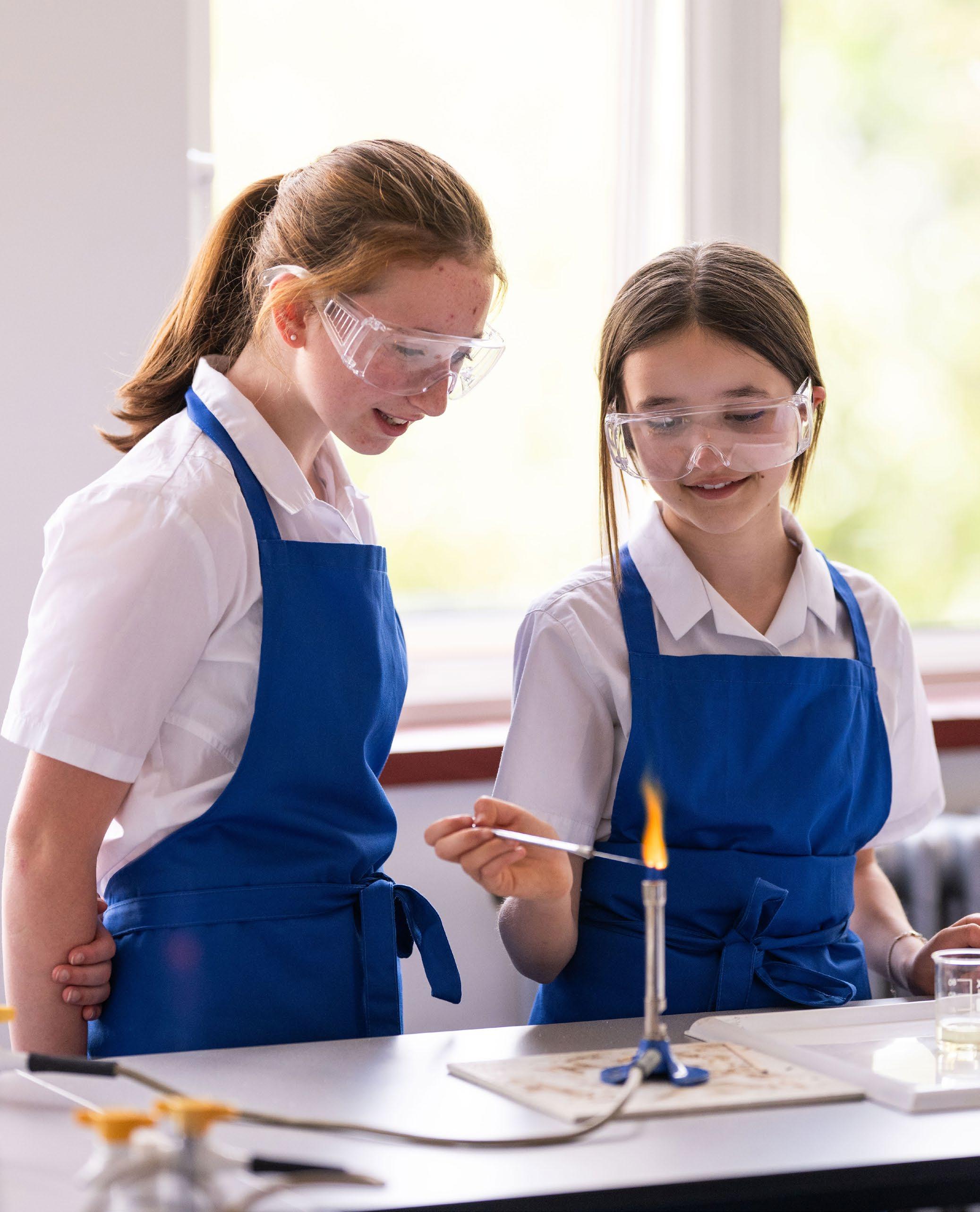
The Science department paves the way for students to navigate the rapidly developing world which impacts their lives and their future careers. At LEH, this begins with a tailored two-year science course in which the intellectual curiosity of students for the fundamentals of Biology, Chemistry and Physics is nurtured by thorough investigative practical work. The three sciences are taught as a six module rotation by a single Science specialist. Outside the classroom there are opportunities to investigate science further with STEM based clubs.
In Thirds, fundamental theory is taught across all three Science subjects:
• Biology - cells & microscopy and human & plant reproduction
• Chemistry - particles, solutions, chemical reactions and equations, separation techniques and acids
• Physics - waves and electricity.
Regular testing is part of the structured year to help students to develop the learning and consolidation skills necessary for the years ahead. Furthermore, it starts to develop ‘exam technique.
In Lower Four, the fundamental topics in Thirds are built upon with students applying their knowledge to new topics:
• Biology topics - Ecology, the circulatory system and respiration
• Chemistry - the Periodic Table, metals reactivity and salt formation
• Physics - Motion and Energy.
Regular testing is part of the structured year to help students to develop the learning and consolidation skills necessary for the years ahead. Furthermore, it starts to develop ‘exam technique.
Pupils in Upper Four are taught Biology, Chemistry and Physics as separate subjects and by specialist teachers. Each Science starts teaching the relevant Edexcel GCSE syllabus with topics building on the fundamentals they
learned in Thirds and Lower Four. The topics covered in Biology, Chemistry and Physics in U4 are relevant for those who will select, at the end of the year, to study Separate Science or Combined Science. Everything studied this year can be examined in the formal GCSE examinations in May/ June 2027.
Biology
In Upper Four, Students start studying GCSE Biology from September and will cover two of the nine GCSE topics as well as complete four Core Practicals.
Topic 1: Key concepts in Biology.
Topic 8: Exchange and transport in animals.
Chemistry
Students start GCSE Chemistry in September and develop the fundamental knowledge they gained in Thirds and Lower Four by studying three GCSE topics.
Topic 1: (part one) Atomic Structure and The Periodic Table.
Topic 2: States of Matter and Methods of Purifying and Separating Substances.
Topic 8: Fuels, Hydrocarbons and the Atmosphere.
Physics
Students begin the year, until October half term, studying a bespoke course aimed at preparing them for their study of GCSE Physics.
Topic 2: Motion (part one)
Topic 4: Waves
The topics covered in Upper Four Biology, Chemistry and Physics are relevant for both the Separate Sciences (Biology, Chemistry and Physics) or Combined Science syllabus that students will opt to study in Lower Five and Upper Five.

Art and design play a vital role in education by promoting creativity, critical thinking, cultural understanding, interdisciplinary connections, emotional intelligence, visual literacy, and aesthetic appreciation across such a wide variety of subjects.
A diverse and exciting art and design education strengthens pupils’ ability to appreciate and interpret what they observe, communicate what they think, feel and hear, and make what they imagine. The subject is intellectually challenging and creatively demanding.
Throughout Key Stage 3 pupils are taught in mixed ability groups. The year is split into two practical and contextual projects.
In Thirds students will experiment with a wide range of materials and processes through the exploration of the formal elements and their foundation vocabularies. This vocabulary allows students to describe, evaluate and express opinions about their own and others works of Art, Craft and Design. Keen observation and drawing skills form the foundation of study and are explored through enquiry, investigation and context of Art, Craft and Design across time and culture.
Natural Forms – drawing and print
• Knowledge content - Formal Elements, Context, Processes, Vocabulary
• Threshold Concepts - Artists make marks
• Links to prior learning - Builds on using sketchbooks as a creative tool, used to gather, collect, experiment and reflect
• Skills of Designing and Developing Ideas
• Skills of Making Art, Craft and Design
• Skills of Judgement and Evaluation.
Abstract Forms – mixed media 2D/3D
• Knowledge Content - Formal Elements, Context, Processes, Vocabulary
• Threshold Concepts - Artists communicates to all and has many histories
• Links to prior learning - Builds on knowledge of Art, Craft and Design History
• Skills of Designing and Developing Ideas
• Skills of Making Art, Craft and Design
• Skills of Judgement and Evaluation.
In Thirds, students have acquired the knowledge of the formal elements and their breadth of application using a wide range of materials and processes. In Lower Four the depth of this knowledge grows through umbrella themes. Students build on their foundation vocabulary as they compare and analyse visual concepts studied through context across time and culture. Students will revisit and develop the application of drawing skills and drawing for purpose.
Portraiture or Structure – print or paint
• Knowledge Content - Formal Elements, Context, Processes, Vocabulary
• Threshold Concepts - Art is not fixed in meaning but reflects the context
• Links to prior learning - Builds on using sketchbooks as a creative tool, used to gather, collect, experiment and reflect. Revisits drawing
• Skills of Designing and Developing Ideas
• Skills of Making Art, Craft and Design
• Skills of Judgement and Evaluation.
Environment or Abstract Forms – ceramics or 3D
• Knowledge content - Formal Elements, Context, Processes, Vocabulary
• Threshold Concepts - Artists reflect the world as seen by their own eyes
• Links to prior learning - Builds on knowledge of Art, Craft and Design History
• Skills of Designing and Developing Ideas
• Skills of Making Art, Craft and Design
• Skills of Judgement and Evaluation.
In Lower Four students gain their knowledge of codes and conventions in art. They develop skills in judgement and evaluation to be able to adapt and refine their work and be able to recognise and discuss the influence of time and culture. In Upper Four, students use their understanding of codes, conventions, genres, styles, and traditions to inform their own judgements and strengthen their artwork. Students will increase their proficiency in handling materials and purposefully use tools and techniques to create a range of work through umbrella themes. Drawing continues to be explored to allow for experimentation, development, refinement, to reflect on and modify thinking, to problem solve and to visualise potential solutions.
Exploration or Natural Forms – paint or mixed media
• Knowledge Content - Formal Elements, Context, Processes, Vocabulary
• Threshold Concepts - Artists play with materials, ideas and failure
• Links to prior learning - Builds on using sketchbooks as a creative tool, used to gather, collect, experiment and reflect. Revisits drawing
• Skills of Designing and Developing Ideas
• Skills of Making Art, Craft and Design
• Skills of Judgement and Evaluation.
Designer Maker or Environments – 3D or digital/ drawing
• Knowledge Content - Formal Elements, Context, Processes, Vocabulary
• Threshold Concepts - Art has its own vocabulary shaped across time and space
• Links to prior learning - Builds on knowledge of Art, Craft and Design History. Revisits Art as a language
• Skills of Designing and Developing Ideas
• Skills of Making Art, Craft and Design
• Skills of Judgement and Evaluation.
We have Art Trolley which encourages the whole school community to get involved with creative activities one lunchtime a week. In Textiles there is a weekly club for Thirds and Lower 4 which offers the opportunity for students to develop and refine skills whilst working on small ‘design and make’ projects.

Throughout Key Stage 3 pupils are taught in mixed ability groups. In Thirds and Lower Four the year is split into two rotations where students spend half the year in Food and Nutrition and half the year in Textiles. The textile rotation covers skills based practical and contextual projects.
In Upper Four the students spend the whole year in Textiles. The year is split into two skills based practical and contextual projects.
In Thirds students will be introduced to textiles and experiment with a range of materials and processes through the exploration of the formal elements and their foundation vocabularies. This vocabulary allows students to describe, evaluate and express opinions about their own and others work.
Keen observation, drawing skills and practical textile skills form the foundation of study and are explored through enquiry, investigation and context of Art, Craft and Design across time and culture.
Natural Forms – an introduction to textiles
• Knowledge ContentFormal Elements – Line, Texture, Colour, Composition Context - Earnst Haeckel, Max Ernst, Ana Tereza Barboza, Willima Morris Processes - Hand Stitch, Frottage, Weave, Collage, Machine Sewing, Wet Felting, Poly Block Printing
• Threshold Concepts - Artists make marks
• Links to prior learning - Builds on using sketchbooks as a creative tool, used to gather, collect, experiment and reflect
• Skills of Designing and Developing Ideas
• Skills of Making Art, Craft and Design
• Skills of Judgement and Evaluation.
In Thirds, students have acquired the knowledge of the formal elements and their breadth of application using a range of textile materials and processes. In Lower Four the depth of this knowledge grows. Students build on their foundation vocabulary as they compare and analyse visual concepts studied through context across time and culture. Students will revisit and develop the application of drawing for purpose and practical skills.
Environment or Abstract Forms – essence of the city
• Knowledge ContentFormal Elements – Structure and Form Context - Claire Brewster, TFL Moquette Design, Cartography and Logo Design in Industry Processes - Applique, Quilting, Machine Embroidery, Cartography, Heat Transfer Printing, Lino Printing, Digitial Design, Fabric Painting
• Threshold Concepts - Artists reflect the world as seen by their own eyes
• Links to prior learning - Builds on knowledge of Art, Craft and Design History. Concept
• Skills of Designing and Developing Ideas
• Skills of Making Art, Craft and Design
• Skills of Judgement and Evaluation.
In Lower Four students gain their knowledge of codes and conventions in textiles. They develop skills in judgement and evaluation to be able to adapt and refine their work and be able to recognise and discuss the influence of time and culture. In Upper Four students use their understanding of codes, conventions, genres, styles, and traditions within
textiles to inform their own judgements and strengthen their artwork. Students will increase their proficiency in handling materials and purposefully use tools and techniques to create a range of work through generated themes.
Drawing and practical processes continue to be explored to allow for experimentation, development, refinement, to reflect on and modify thinking, to problem solve and to visualise potential solutions.
Exploration or Natural Forms – Bug World: exploring symmetry in the natural world
• Knowledge ContentFormal Elements - Colour, Pattern, Texture, Composition
Context - Durer, Alexander McQueen, Timorous Beasties
Processes - Machine Embroidery, Batik, Wet Felting, Dying, Fashion Design, Pattern Making, and Headband Design
• Threshold Concepts - Artists play with materials, ideas and failure
• Links to prior learning - Builds on using sketchbooks as a creative tool, used to gather, collect, experiment and reflect. Revisits drawing
• Skills of Designing and Developing Ideas
• Skills of Making Art, Craft and Design
• Skills of Judgement and Evaluation.
Designer Maker/Repurposing – Personal Messages/ Narratives
• Knowledge ContentFormal Elements - Line, Colour, Structure Context - Personal Narratives, Maria Wigley, Cas Holmes, Maurizo Anzeri Processes - Weave, Text Manipulation, Photography, Image Transfer, Fibre Bonding, Restructuring / Upcycling
• Threshold Concepts - Art has its own vocabulary shaped across time and space
• Links to prior learning - Builds on knowledge of Art, Craft and Design History. Revisits Art as a language
• Skills of Designing and Developing Ideas
• Skills of Making Art, Craft and Design
• Skills of Judgement and Evaluation.
There is a weekly club for Thirds and Lower 4 which offers the opportunity for students to develop and refine skills whilst working on small ‘design and make’ projects.

Latin is the root language from which all Romance languages and English derive. Studying Latin gives students a deep understanding of how languages work and enables them to make informed connections between it and the modern languages they study, including English. It enriches their vocabularies and demands intellectual rigour, structured learning, and keen analytical thinking. The ancient world permeates the modern world culturally, politically, socially and artistically. Studying Classical Civilisation enables students to gain a deeper understanding of the world they live in while examining literature and art that has inspired and influenced subsequent generations for thousands of years.
Pupils study Latin using the Cambridge Latin Course Book1, reading stories and completing exercises from Stages 1-7. They follow the story of Caecilius and his family living in Pompeii and learn about aspects of Roman daily life. Latin is an inflected language and so pupils learn to examine and analyse the ending of words rather than using word order to unpack meaning. They learn the nominative and accusative cases of 1st, 2nd and 3rd declension nouns and develop an understanding of the concept of subject and object. They also learn three tenses of the four conjugations: the present, imperfect and perfect. Pupils learn how to write sentences in Latin and master the full conjugations, going beyond the requirements of the Cambridge Latin Course.
Pupils complete the Cambridge Latin Course Book 1, reading stories from Stages 8-12 and studying topics such as gladiatorial games, Roman baths, politics and the eruption of Vesuvius. They learn the full declension of 1st, 2nd and 3rd declension nouns and examine all uses of cases. They then study modal verbs, the use of the infinitive and principal parts of verbs. As they start Latin to GCSE Book 1, they hone their skills at writing in Latin and start reading stories from Chapters 1-3 based on Greek and Roman mythology. At the end of the Spring Term, pupils are given the opportunity to choose whether they want to continue their study of Classics or to start studying Classical Civilisation in Upper Four.
Latin
Students continue to expand their grammatical and linguistic knowledge using Latin to GCSE Book 1, Chapters 3-6. The stories are centred on Aeneas, the founder of the Roman race, giving them an introduction to Roman mythology and Virgil’s epic, The Aeneid. The course provides an ideal foundation for the study of Latin at GCSE. Students study expressions of time and place, adjectives, imperatives, the future and pluperfect tenses, neuter nouns, and personal pronouns. Pupils also explore the history and culture of the Romans, culminating in a project undertaken at the British Museum in the Spring Term.
Classical Civilisation
Pupils study three modules: Homer’s account of the adventures of Odysseus in Homer’s Odyssey, Greek Art and Architecture, and Euripides’ Medea. In doing so, they study two genres of literature as well as primary and secondary sources, building up their skills of analysis, interpretation and research. They also complete a project based on artefacts in the British Museum in the Spring Term. By looking at the classical foundations of tragedy, sculpture and epic, they deepen their knowledge of the ancient world and develop insight into its lasting influence on art and literature.
For all Middle School (KS3) students, we run Myth Club on Monday lunchtime, in which fifth and sixth form students share their passion for mythology with those in younger years.
Annual trips to the Roman villas at Bignor and Fishbourne and the British Museum enable students to learn about the ancient world from primary sources.
Each year pupils are selected for the Classical Reading Competition at Westminster School. The Classics Department also runs an annual Classics Competition in which students can submit their own creative work inspired by ancient mythology or history.
In addition, pupils are invited to attend lunchtime lectures at Hampton School. In recent years these have been on topics such as Alexander the Great or the truth about gladiators.

Our goal is to cultivate a dynamic and inclusive learning environment that inspires and equips pupils to become innovative thinkers and problem-solvers in the digital age. We aim to ignite a passion for learning through a curriculum that is both challenging and relevant, preparing pupils for a future where technology plays a pivotal role.
The Thirds Computer Science curriculum is a comprehensive introduction to the digital world, designed to equip students with foundational skills in problemsolving, programming, data representation, and physical computing. It’s an engaging journey from understanding control systems to creating interactive stories and hands-on projects, all fostering critical computational thinking.
Topics include:
• Control Systems: Students engage with Flowol software to create flowcharts that solve real-world problems, such as controlling traffic lights, amusement park rides, and railway crossings
• Python Programming: Building on their computational thinking skills, pupils develop an interactive adventure story, enhancing their understanding of programming concepts like sequencing, selection, and iteration
• Data Representation: The curriculum delves into the fundamentals of how computers process and represent
data, exploring binary, hexadecimal, ASCII, and Unicode systems
• Physical Computing: The year culminates with handson projects using micro:bits, where students apply their knowledge to craft inventive solutions to practical challenges.
In Lower Four, pupils begin their technological journey with the creative realm of web design. They learn to construct websites using HTML and CSS, and may even explore JavaScript to add interactive elements to their projects.
Building on this, students revisit Python programming to enhance their computational thinking and coding skills. They take on the exciting challenge of designing and coding an escape room game, putting their problemsolving abilities to the test.
The curriculum then turns to understanding the inner workings of computers. Students explore the critical components that power our digital world, including CPUs, RAM, ROM, and secondary storage.
Finally, the course highlights Digital Literacy and Ethics, encouraging students to think critically about online content and their responsibilities as digital citizens.
In Upper Four, students begin by exploring image representation and developing digital creativity through Photoshop. They design an original movie poster, applying both technical and artistic skills. Building on this, they revisit Python programming in a challenge that brings together all their coding knowledge to create a fully functioning quiz.
As they progress, pupils unravel the mysteries of Artificial Intelligence (AI). They explore how AI operates and its groundbreaking applications that continue to push the limits of technology and imagination.
The curriculum culminates with a focus on digital literacy. Students employ functional programming within spreadsheets to simulate real-world scenarios, such as calculating the costs associated with organising a school prom.
Through this comprehensive programme, Upper Four students gain a robust foundation in Computer Science, equipped with the skills to navigate and innovate in a digital future.
There is a vast array of opportunities available for KS3 pupils in Computer Science, whether it be through exciting and challenging competitions or enriching extracurricular clubs.
Annual Computing Competitions:
• Bebras Computational Thinking Challenge: Every November, all pupils embark on the Bebras Challenge, fostering problem-solving skills and computational thinking
• Bebras Coding Challenge: for those that took part in the Bebras challenge, to enhance skills, build confidence, and inspire students to develop programmed solutions to computational thinking problems
• Perse Coding Team Challenge: Upper Four students collaborate and compete, showcasing their coding prowess
• CyberFirst Girls Competition: Lower Four girls engage in this cybersecurity challenge, deciphering codes and tackling digital puzzles
• Advent of Code: As the festive season approaches, our community enjoys the countdown to Christmas with daily coding challenges that are as merry as they are tricky.
Dynamic Clubs for Aspiring Technologists:
• Code Club: Dive into programming with our half-hour sessions designed to develop, extend, and support students’ coding abilities
• Minecraft Club: Join the adventure and creativity in our popular Minecraft club, where virtual worlds spark imagination
• Physical Computing Club: Apply coding skills to tangible technology, exploring the exciting interface between digital and physical realms
• Esports: A hub for competitive gaming, teamwork, and strategy—students battle it out in titles like Mario Kart and Smash Bros.
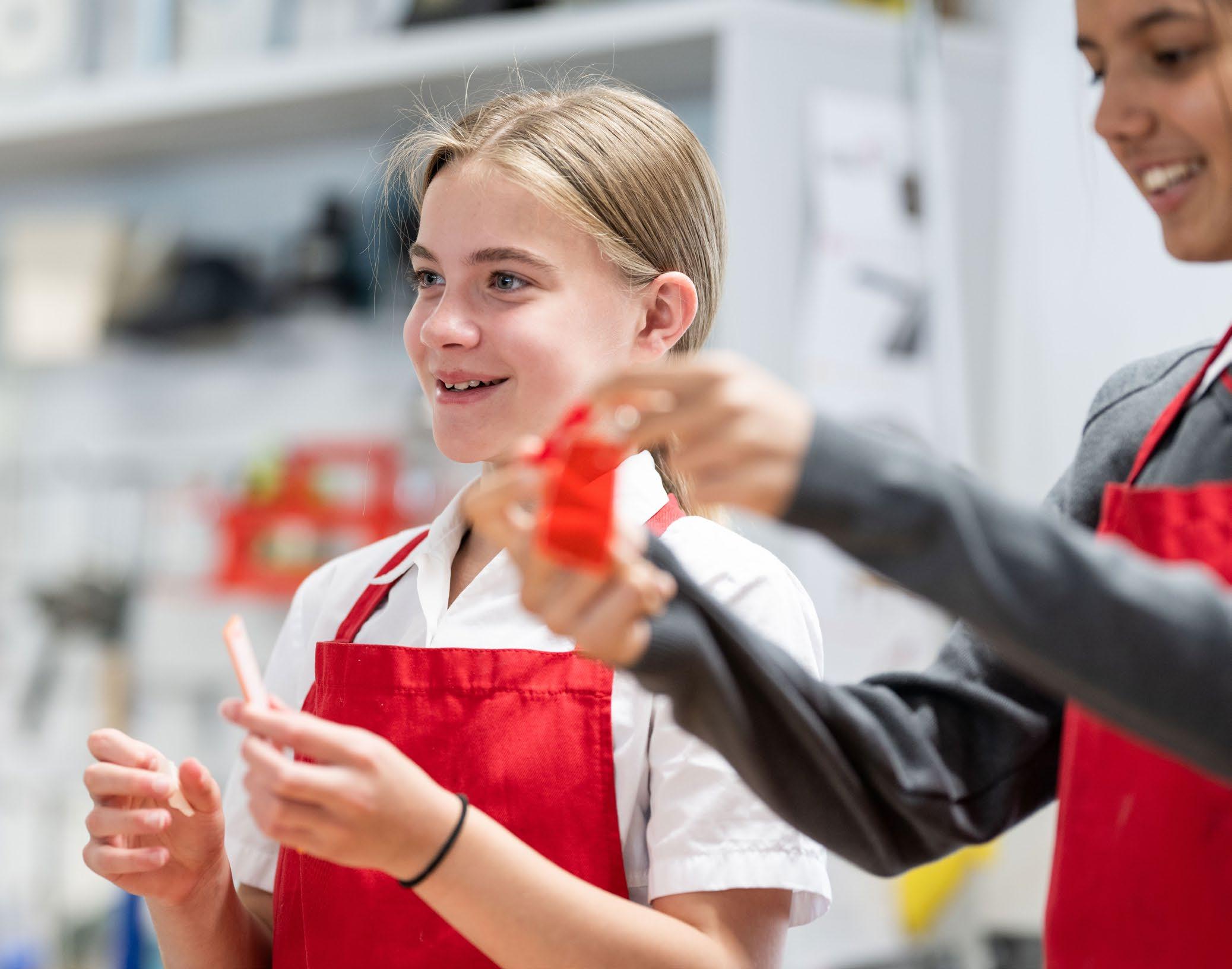
Product Design impacts the lives of everyone. Designing is a challenging and complex process which requires the application of a wide variety of skills and knowledge that are learnt in many other aspects of the LEH curriculum. The aim of courses in the foundation years is to develop a skillset that makes pupils autonomous risk takers, develop a sound technical knowledge of design principles and processes, and practical skills that enable modelling and prototyping to be achieved safely and to a high standard. Pupils are taught a wide variety of topics by subject specialists in modern well-equipped rooms.
The first year includes activities which focus on designing without making, making without designing and full designmake-test-evaluate tasks. Design principles topics include a study of what is design and what constitutes good design; product analysis and studying the work of iconic contemporary designers; user-centred design, ergonomics, and anthropometrics. Computer aided design and computer aided manufacture lessons familiarise students with 2D software for laser cutting and solid modelling software for 3D printing. Designing skills include exploring strategies to avoid design fixation, sketching and presenting ideas in 2D and 3D.
Health and safety is taught throughout the course when pupils work with a variety of modelling materials, hand tools and machinery to create outcomes in card, foam, polymers, and textiles. A mini design project using thermoforming, 2D CAD and laser cutting enables pupils to develop and apply the skills they have learnt throughout the course. A study of biomimicry, smart materials, basic electronics, and mechanical systems gives pupils the opportunity to learn about some of the engineering used in products. Pupils learn to document their work through the use of a design book which includes research, sketches, formal drawings, photographs of models and prototypes.
Pupils build on their skills and knowledge from the previous year and undertake projects that require more in-depth research, analysis and further development using stakeholder feedback to iteratively develop design solutions. Whilst design is the main focus in Lower Four course with pupils responding to a brief to develop a product for a specific target market, more advanced CAD/modelling skills are taught, and greater depth of investigation and iterative development is expected.
Pupils research the wants and needs of users, develop proposals using sketching and 3D modelling, and manufacture functioning prototypes from polymers using CAD/CAM and electronics. The design principles course introduces pupils to a systems approach to designing, user empathy, and strategies for designing products which are environmentally friendly and consider principles of design for manufacture and assembly. Projects in Lower Four require pupils to apply and explicitly record their knowledge of mathematics and science in their problem solving and document their understanding of wider issues of inclusivity, economics, and environmental awareness in their design books.
Pupils opt to continue their study of Product Design in Upper Four. The course adopts the ethos of the OCR specification with projects used for the development of more advanced skills and knowledge expected at GCSE.
A jewellery project focusses on design presentation, sketching and modelling, and CAD/CAM skills with an emphasis on metals and polymers as the main manufacturing materials. Pupils investigate traditional and smart/modern metals and manufacturing techniques as part of their understanding of new and emerging technologies. A context-based project similar to the GCSE NEA is undertaken in the Spring Term.
Pupils are required to analyse a context, identify design opportunities for developing a new product, develop proposals using sketching and modelling and present a final design for testing and evaluation by stakeholders. A second project focusses on a study of the evolution of chairs and seating design from 1920 to the present day. The impact of social, technical and environmental changes are considered as icon designs from several epochs are analysed and modelled. The project culminates in a design and modelling task that requires pupils to public design seating which encourages social interaction and considers wider issues including sustainability, safety and inclusivity.
As an introduction to the specialist material study at GCSE, pupils work on a brief as part of the Institute of Materials, Minerals and Mining (IoM3) polymer packaging competition. They are required to research, design and present a concept for an eco-friendly packaging problem which changes annually.
In addition to participating in the IoM3 competition in Upper Four, pupils are supported with their entries to the F1 in Schools and the Greenpower IET Formula 24 Electric Car project. When appropriate, Design Ventura, promoted by the Design Museum is used as a vehicle for the delivery of the design context project in Upper Four.
Pupils are able to access the Product Design rooms at lunchtime throughout the week to catch-up and continue with their project work.
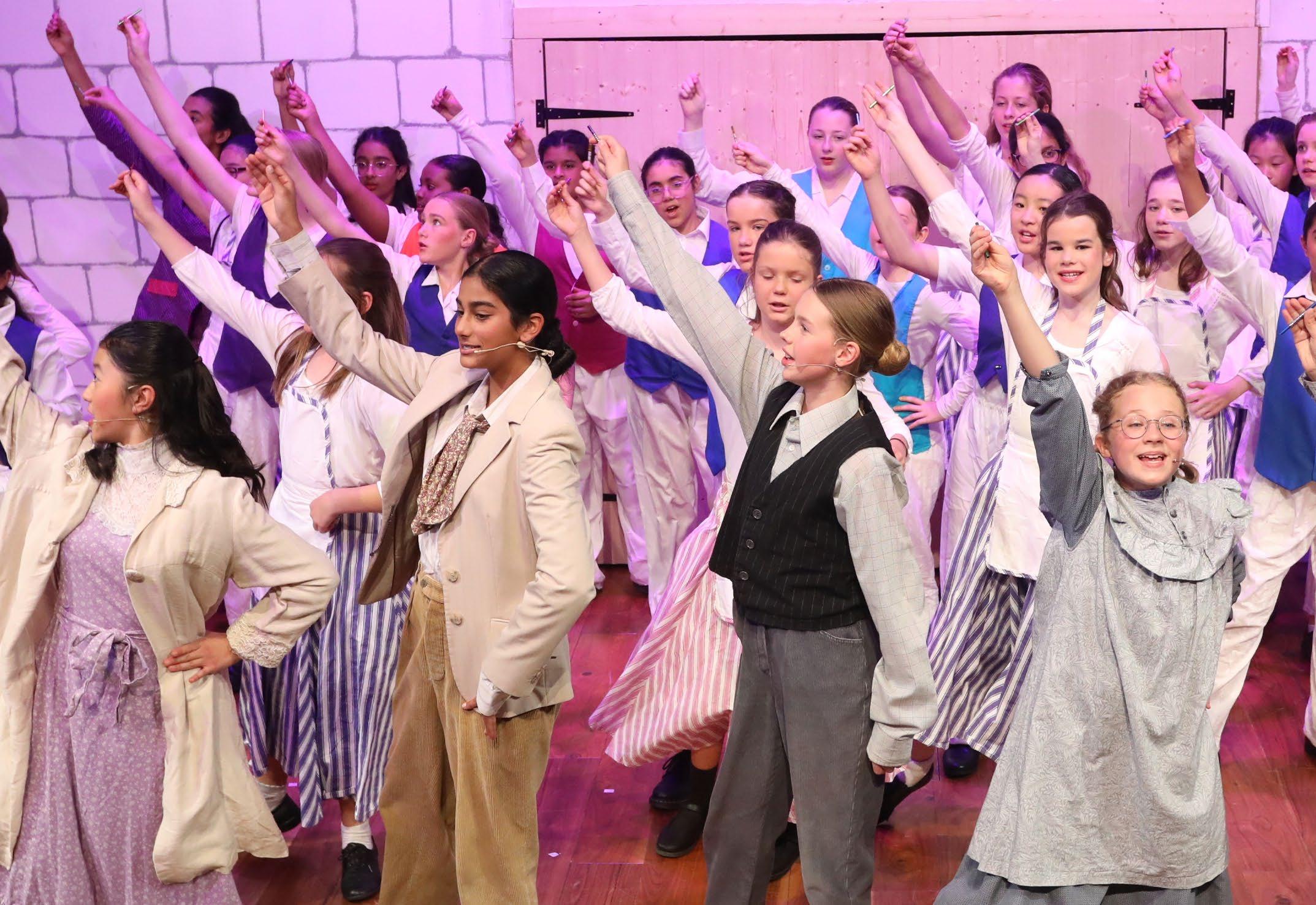
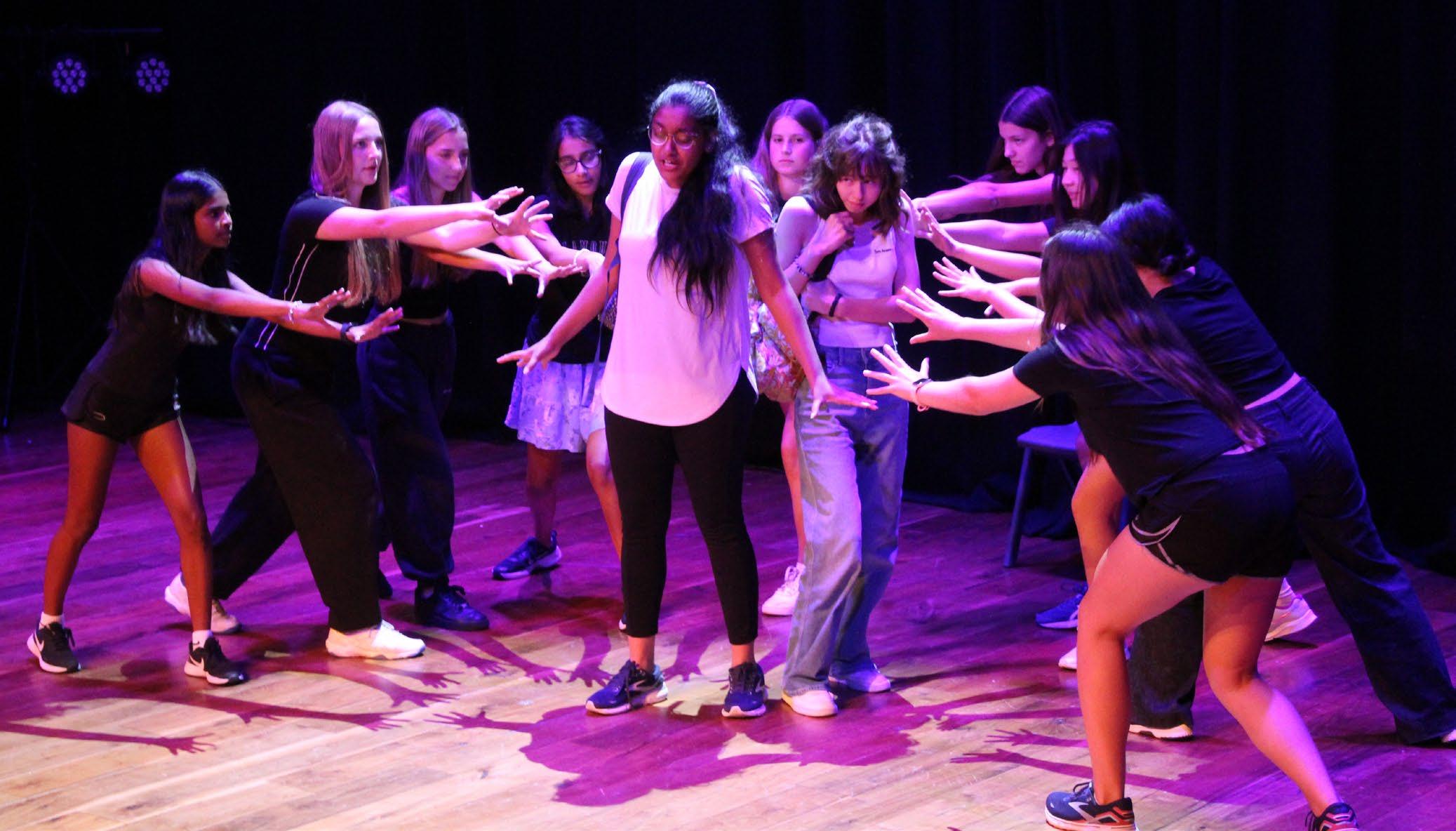
The holistic approach we take in Drama enables pupils to develop the skill set required to perform or design for the stage alongside boosting their confidence and self-esteem through understanding their own world and the world of others. Through role-play, discussion, individual, pair and group work pupils learn to form and express opinions, push their imagination, share their creativity, reflect effectively on their learning and lead others. We aim to provide the wider school community with an enriching, diverse and entertaining theatre programme drawing on the European cannon of classic texts as well as the best of contemporary theatre arts practice.
In Thirds, we provide each pupil with a firm understanding of drama as a practical medium for the exploration of ideas, and theatre as an art form with the potential to reflect and influence the broader culture in which it is created. The department aims to do so through a cycle of making, performing and reviewing practical work. Pupils explore the history of theatre, work in production groups to inspire and realise new performances, design lights, sound, costume and set for A Midsummer Night’s Dream and learn professional stage combat techniques. We build on the pupils’ existing strengths and experiences and challenge them further to feel confident in their movement ability and in conveying their own unique voices.
Pupils in Lower Four are introduced to theatre from different cultures exploring a plethora of dramatic skills, including relevant practitioners where appropriate and broadening their understanding of the different dramatic media. They learn to appreciate and respect theatrical practice from other cultures and countries developing their ability to consider social, cultural and historical perspectives; a desired skill to apply to their learning in other curriculum subjects. Pupils explore cutting-edge practitioners such as the theatre director Katie Mitchell, understanding current trends in Naturalistic performance which extends beyond Stanislavski’s 20th century acting toolkit. Through our Protest Theatre scheme of work pupils focus on how theatre can be used to bring about change in society, confronting topics such as homelessness, racism and sexism. In terms of developing movement skills, pupils delight in Puppetry and Mask work, enjoying the sense of freedom they receive by expressing characters through different performance media.
When selecting Drama in Upper Four, pupils are choosing to explore more precisely a wider exploration of Theatre and Communication Skills. Pupils are given the opportunity to specialise in Directing, Acting, Presenting, Filming and Editing which provides a foundation for more independent study and project work. Through the study of The Paper Birds theatre company, pupils devise socially conscious work incorporating verbatim theatre techniques to a professional standard. Pupils respond positively to opportunities to create work about their own preoccupations and discuss and debate important issues such as social media and beauty standards in ‘The Beauty Manifesto’. This works alongside our wellbeing programme in the school. Pupils also learn about filming different angles and shots as they create their own Horror film.
There are a wealth of opportunities to get involved in drama and theatre as well as see live theatre as we are spoilt by London’s rich theatre scene. From the Middle School Musical to Technical Theatre Club, the Theatre in Education tour to local primary schools, Drama Club and the Upper Forth/Lower Fifth Play, there is much from which to choose. Our Write the Girl initiative provides opportunities for playwriting and directing through workshops with professional practitioners, and we aim to support and advise any member of the wider school community in their attempts to produce or experience a performance event.

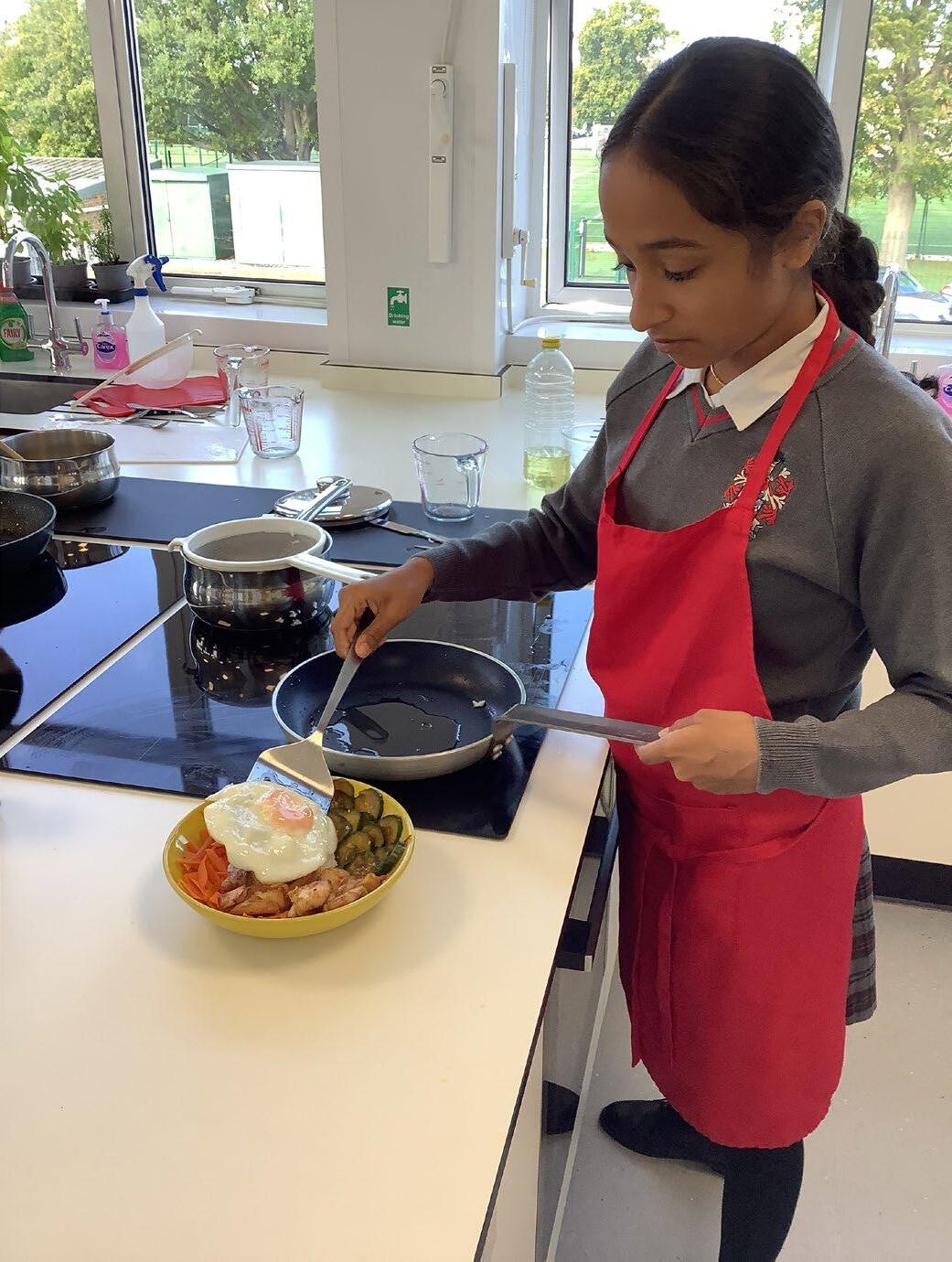

In Thirds students follow a 12-week course in Food and Nutrition. It equips them with essential skills in food hygiene and safety, ensuring they can confidently prepare nourishing meals for themselves and others. Throughout the course, students become adept at utilising various parts of the cooker safely and independently, fostering a sense of culinary confidence. Guided by the Eatwell guide, they explore the five fundamental food groups, developing their ability to make informed, health-conscious dietary decisions so that they can prepare and cook a range of simple dishes that include foods from each of these food groups. Complementing their hands-on experiences, theory tasks provide a robust academic foundation, reinforcing their understanding of nutritional principles. Through documentation in their OneNote books, students record both the theoretical underpinnings and their practical outcomes, fostering a holistic appreciation for the subject.
In Lower Four students follow a 12-week course in Food and Nutrition. The course enhances their knowledge and understanding of what constitutes a healthy, balanced diet and good nutrition. This includes the Eatwell Guide, energy balance and the function of nutrients in a balanced diet. They develop a range of different practical skills and make a range of predominantly savoury products which meet current guidelines for healthy eating. Food hygiene and safety is taught as an integral part of every lesson when preparing, cooking and serving foods. All the activities and lessons can be easily adapted to cater for different dietary needs and reduce costs. As in Thirds, students complete a theory task related to the practical skill being taught each week and record both the theory and a photographic record of their practical work in their OneNote book.
In Upper Four, Food and Nutrition is one of the creative subject options in LEH. Students have four lessons a fortnight and complete a new practical task every week. There will be opportunities for students to conduct demonstrations, paired work and small group work.
Students are required to record their practical outcome each week in their own digital recipe book, including explaining the functional properties of the ingredients used to build their scientific understanding of food preparation and cooking processes.
The practical skills developed on this course include a range of high-level skills, providing students with a firm foundation for the GCSE Food and Nutrition course.
Students choosing not to study the subject at GCSE will leave with a high-level of practical competence and valuable dietary knowledge. The theory topics delivered during the course also mirror those that are delivered on the GCSE course but are introductory modules rather than in-depth studies.
The practical skills that are covered throughout the key stage are presented below. Those in red text are covered in Upper Four only:
• Weighing, measuring, preparing ingredients and choosing correct equipment/tools for each task
• Correct cooking times, testing for readiness and sensory testing
• Knife skills including: fruit and vegetables
• Using the cooker including: the hob, grill and oven
• Use of equipment including: blenders, food processors, mixers, pasta machines and microwave ovens
• Cooking methods including: steaming, boiling, simmering, blanching, poaching and frying
• Techniques to prepare, cook and combine different ingredients
• Sauce making including: starch based, reduction and emulsions
• Tenderising and marinating different ingredients
• Making dough including: bread, pastry and pasta
• Use of raising agents including: eggs, chemical, steam and biological
• Setting of mixtures through use of heat and egg protein.
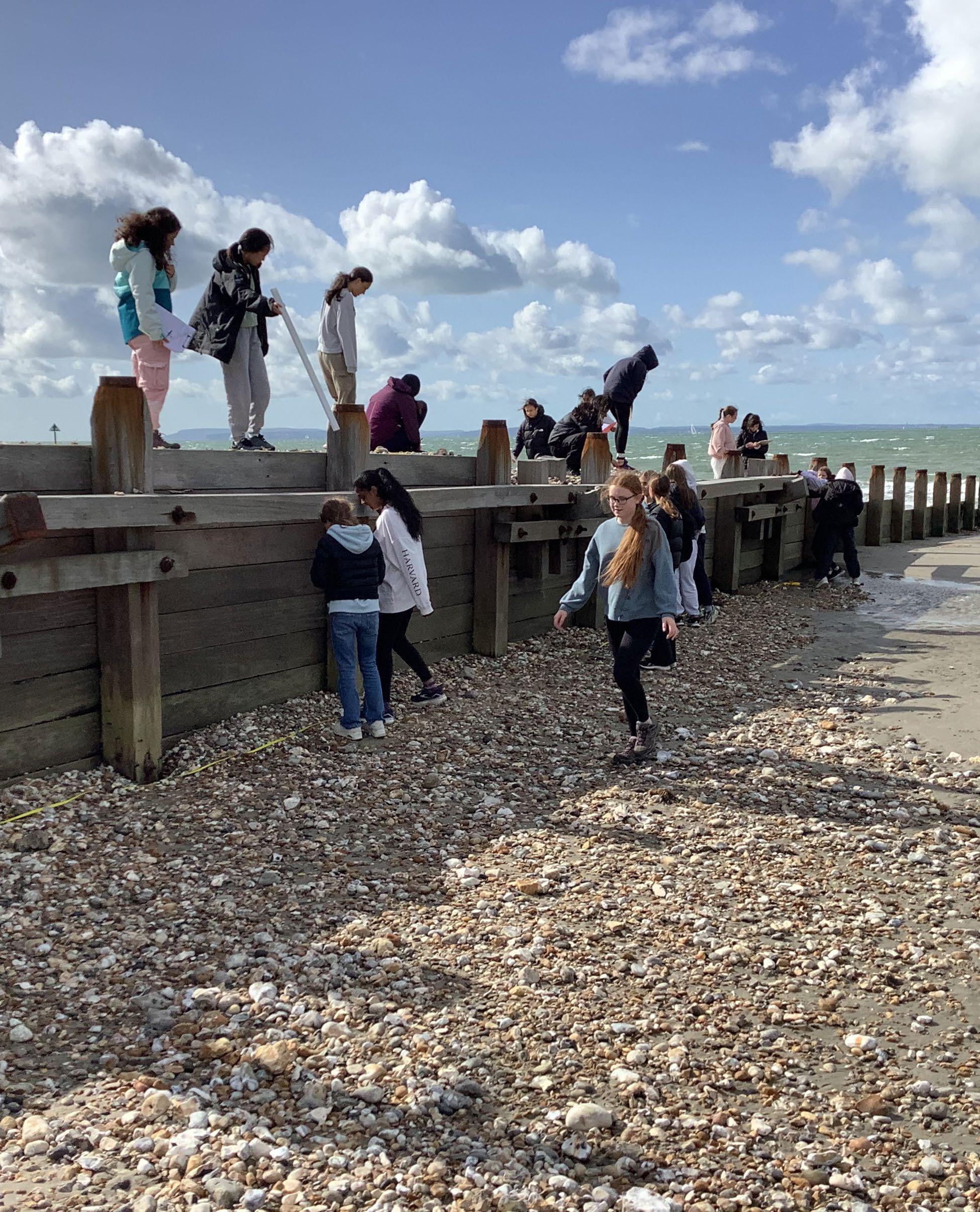
Geography is an essential subject to develop understanding of the world around us and the vast array of interconnected processes that form the natural and human landscape. Geography bridges the sciences, humanities and the arts, where scientific and statistical analysis are woven into the subject content. Geography impacts everything that happens on our planet and a study of Geography will broaden and deepen understanding of a wide range of issues. At KS3 Geography is taught in form groups.
Students begin the year exploring the Rainforest topic, considering indigenous tribes, threats of deforestation and sustainable management in the forest. Students then move on to the topic of weather and climate. Students will learn how these concepts work and how they are interlinked. We will explore how weather is measured and reported. Students learn about microclimates and how factors such as aspect influence this. Students will then undertake an investigation into the Microclimate of the school using digital anemometers and thermometers. Woven throughout the year students will complete Geographical skills including OS Map Skills and Numerical Skills.
Students begin the year looking at development and globalisation, exploring inequality on a global scale and the ways in which countries can develop and improve the quality of life for their inhabitants. We explore the economic geography of primary, secondary and tertiary driven economies and the impacts of global trade. Students complete local fieldwork on the globalisation of the local high street. We then move on to a topic on Tectonics where students explore earthquakes and volcanoes and their associated hazards.
Students begin the year studying coastal processes, looking at erosion, transportation and deposition. Students complete a fieldwork study of the Coastal Management of West Wittering. We then move on to a study of population dynamics where students explore demographic processes, ageing populations and migration.
Each year, keen Sixth Form students lead a Geography Society for younger pupils.
Students in Middle School (KS3) can expect one day of fieldwork in a local environment. Thirds have recently visited Wisley Gardens to explore Rainforest Vegetation. Lower Four Explore the local Hampton Hill High Street exploring the extent to which it is globalised. Upper Four pupils travel to West Wittering where a study of coastal management is completed.
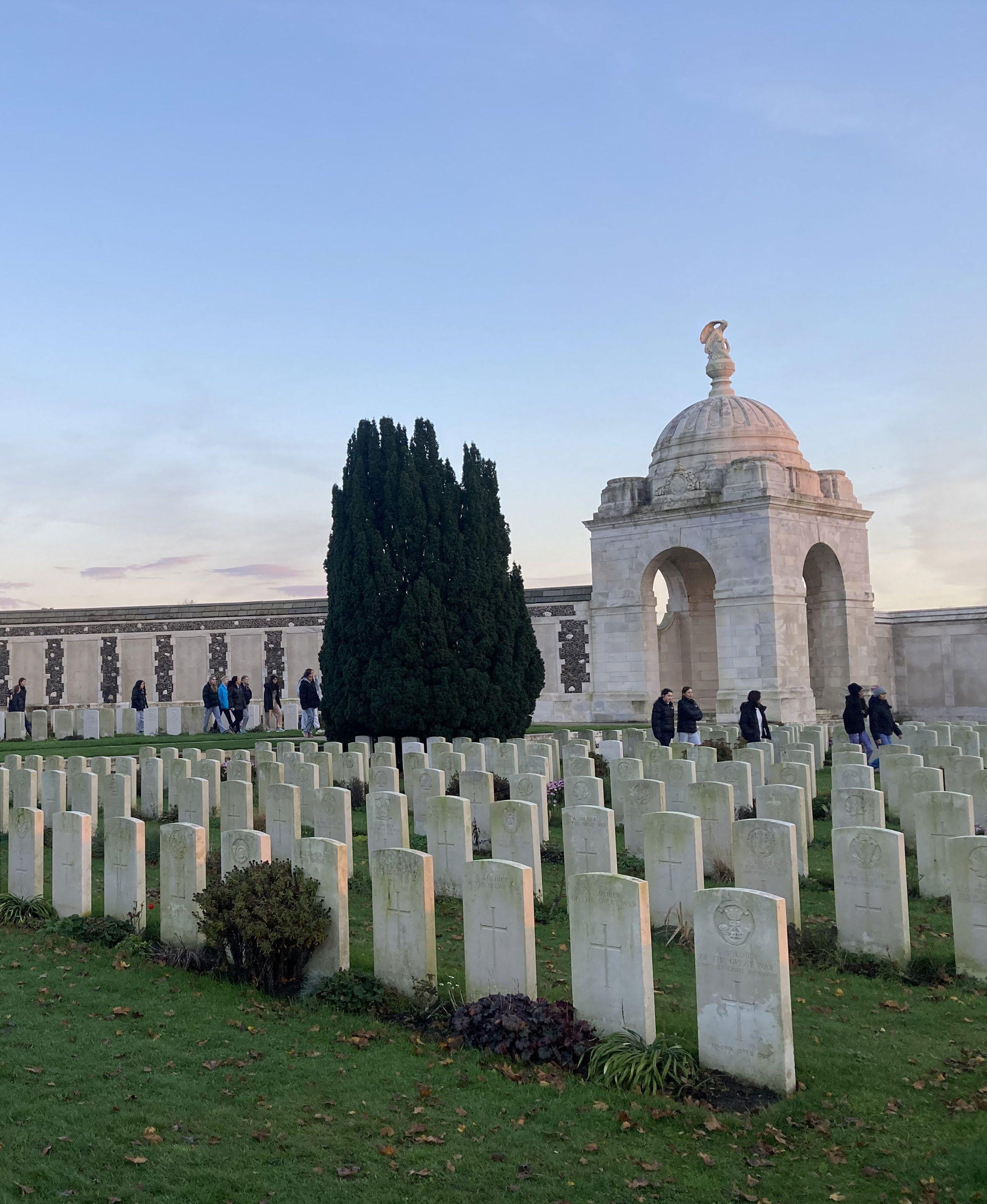
History is essential for understanding the world in which we live. It gives pupils the chance to study human behaviour, societies and cultures across different time periods. History teaches invaluable skills of critical thinking and analysis. Pupils use a variety of sources to consider different interpretations of the past, and use these to form reasoned judgements. History allows pupils to develop empathy, tolerance and respect diversity. Pupils of history are informed about the world around them and become more responsible citizens.
In Thirds, pupils study the Medieval world. Pupils will consider the overarching question, ‘How far was the period 1066-1603 a period of growth and change?’
Pupils will study a series of historical enquiries including:
• How much control did medieval monarchs have?
• Was the Islamic World and West African Kingdoms a Golden Age or the Age of Gold?
• How Modern was the Early Modern Age?
Pupils develop a range of skills including: analysing and cross-referencing sources, explanation and analysis of causes, events and effects and reaching a justified judgement.
Pupils will consider the overarching question, ‘How far was the period of 1600-1900 a period of progress?’.
Pupils will study a series of historical enquiries including:
• Did the monarch betray the people or did the people betray the monarch?
• Is the British Empire something to be proud of?
• What can we learn from the experiences of enslaved peoples?
• To what extent did industrialisation result in prosperity?
Pupils develop a range of skills including: analysing and cross-referencing sources, explanation and analysis of causes, events and effects and reaching a justified judgement.
Pupils will consider the overarching question, ‘How far was the 20th Century a period of conflict?’.
Pupils will study a series of historical enquiries including:
• How important was the fight in the fight for the vote?
• To what extent was the World at war in WWI?
• How effective was the peace treaty in securing long lasting peace?
• How far was 1945-1994 a period of progress?
Pupils develop a range of skills including: analysing and cross-referencing of sources, consideration of sources utility, explanation and analysis of causes, events and effects and reaching a justified judgement.
The Thirds have a History Club which runs with the support of the enthusiastic Lower Sixth during lunchtime. There are opportunities to take part in internal competitions around Black History Month and International Women’s Day for all pupils in Middle School (KS3). There is also a chance in the Summer Term to take part in the Young Historian Award which is run by the Historical Association. In Upper Four the pupils have the chance to submit an essay for the History Department Julia Maria Ruddle Prize. There is the opportunity for Upper Four to go on a residential trip to the Battlefields of the Western Front in France and Belgium as part of their study of the First World War.

A rich, melodious language and the fifth most spoken language by total number of speakers (300 million) and second most widely spoken mother tongue in the European Union, French continues to be a pivotal global language. French maintains its reputation as the language of culture (cooking, fashion, theatre, the visual arts, dance, and architecture) as well as an important language for learning other languages.
Students are banded according to experience and previous exposure to French. Our philosophy is to teach language in a supportive, accessible, engaging, and informative way so that all students feel increasingly confident in the core skills of Listening, Reading, Writing and Speaking. Both receptive and productive skills are taught through a variety of resources and media to introduce new topics and reinforce students’ understanding.
Our primary course book is Tricolore Total 1. The key topics studied in Thirds include introductions, descriptions of family members, numbers, telling the time, describing their house, describing their bedroom, likes and dislikes, weather, seasons, sport, leisure activities, places in a town, telling the time, daily routine, school subjects, opinions, food and drink. Grammar includes regular ‘-er’ verbs, numbers up to 100, the preposition ‘à’ in all its forms, key irregular verbs like avoir, être, faire and aller, positional prepositions, possessive adjectives, reflexive verbs, and the partitive article in all its forms.
Students gradually build up a secure level of proficiency in the receptive skills of listening and reading before learning to express themselves accurately and confidently in the more active skills of speaking and writing in preparation for basic conversations in France and in the francophone world.
Students feel increasingly confident in the core skills of Listening, Reading, Writing and Speaking. Both receptive and productive skills are taught through a variety of resources and media to introduce new topics and reinforce students’ understanding of previous topics.
Our primary course book is Tricolore Total 2. The key topics studied in Lower Four include: French shops and food, numbers, money, quantities and prices, countries, different means of transport, various activities in the immediate future, descriptions of towns and regions, description of school and opinions about school subjects, food and drinks, description of school trips (near future and past). Grammar also plays a pivotal rule by looking at regular and some irregular verbs in the present tense, quantities, negative forms, prepositions with towns and countries, more irregular verbs voir and venir, aller and an infinitive to express a future notion, pouvoir and an infinitive, reflexive verbs, verbs dire, lire, écrire, prendre, boire and partir, finir and choisir, agreement of adjectives (revision), perfect tense with être and avoir, question forms and negatives in the past tense as well as demonstrative adjectives ce, cet, cette, ces.
Students continue to be banded and deepen their proficiency in the receptive skills of listening and reading. They learn to express themselves more accurately and confidently in the productive skills of speaking and writing. All this invaluable content is put into real practice for when students embark on the Lower Four Enrichment trip to France at the end of the Lower Four.
In Upper Four we aim to embed the linguistic progress students have made to date and to strengthen the grammatical foundations for students to embark confidently next year (if they so wish) on the IGCSE course with solid levels of linguistic competence. Both receptive and productive skills are taught through a variety of resources and media to introduce new topics and reinforce pupils’ understanding. Speaking skills are also developed in lessons with the support of our native French Assistant.
Our primary course book is Tricolore 3 5ème édition. Some of the key topics studied in Upper Four include: healthy lifestyles, leisure and opinions, subject comparisons and opinions, differences between the British and French school systems, future careers, local area, a review of a French film. As far as grammar is concerned, students look at the present tense (regular and irregular verbs), perfect tense, imperfect tense, real future tense, reflexive verbs in the perfect tense, use of depuis and present tense, adverbs, and the imperative form. Students continue to deepen their proficiency in the receptive skills of listening and reading before learning to express themselves with greater accuracy and confidence in the more active skills of speaking and writing on an overall aim to build linguistic competence for the IGCSE course at Key Stage 4.
All students in Lower Four and Upper Four are entered into the prestigious Anthea Bell Translation Competition, organised by Queen’s College at Oxford University. All students also take part in the annual Stephen Spender Poetry Translation Competition.
As part of Enrichment week, Lower Four students go to a region of France with an exciting opportunity to be immersed in French language and culture. Past trips have included the Côte d’Opale and Provence.
Students in Upper Four also attend a French play which is entirely in French to promote listening skills in a theatrical setting.

With over 90 million native speakers and millions more speaking it as a second language, German is one of the world’s most widely spoken languages. Learning German provides insights into the rich cultural histories of Germany, Switzerland and Austria whose legacies continue to shape European culture today, from art to literature to music. Germany has Europe’s largest economy and is also home to many multinational companies. A knowledge of German is particularly useful for students interested in fields such as engineering, manufacturing, science and technology whose careers can benefit from the ability to communicate in German in professional settings.
Pupils are taught beginners’ German in mixed-ability groups. Our class sizes of approximately 18 students are optimal for practising conversation skills with peers and for getting to grips with new and exciting words and concepts using the Pearson Stimmt 1 course to support classroom and home learning. Our goal is to foster an enthusiasm for, and curiosity about, the German language and culture and to develop students’ confidence to communicate in simple, accurate German. Students have access to the digital textbook as well as to the Pearson Active Learn interactive digital platform through which they can practise grammar, vocabulary, reading and listening in their own time. Quizlet Plus is used by teachers to organise vocabulary into manageable chunks as learning vocabulary is key to committing new words and language to memory. By the end of Thirds, students can pronounce unseen German words and understand gist and detail in a variety of short texts. They can talk about their family, where they live, their personal interests and hobbies, modern technology as well as their likes and dislikes. They can count to over 100 and list days of the week, months and birthdays. They are starting to link ideas using time phrases and connectives to produce longer, complex sentences. Students can recite a range of verb paradigms both regular and irregular, such as wohnen, haben, fahren, sehen, lesen and sein, amongst others, and can apply conjugation rules to previously unseen regular verbs. Whilst the focus is on creating a solid grounding in the present tense, students also use modal verbs to express wishes or intentions. Aside from language learning, students become more familiar with the geography of German-speaking countries and learn about important traditions in the German cultural calendar such as Weihnachten (Christmas), Ostern (Easter) and Karneval.
Building on language learnt in Thirds, students continue to develop vocabulary on a wide range of topics based on Stimmt 1 and Stimmt 2: school; my town, shopping and ordering snacks; holiday destinations and activities; problems on holiday and discussions around media use – reading, film, TV and online activities. These topics provide colourful contexts for the more complex grammar introduced, namely the perfect, imperfect and future tenses and more intricate subordinating conjunctions such as weil (because) and obwohl (although). We introduce a wider variety of modal verbs, such as müssen (to have to), dürfen (to be allowed to). Students encounter the accusative case (for direct object) which is familiar from Latin. They also
start to write longer, more fluent paragraphs, expressing opinions and adding detail. They enjoy filming interviews with each other in German and are encouraged to speak German spontaneously every lesson. Where possible we make comparisons with the UK and Germany, for example the school systems, so that students have perspective on the culture as well as the language.
By Upper Four we consolidate the tenses with regular review through our topics: food and healthy living, describing my daily routine, fashion and clothing, getting ready to go out, discussing an event in the past and plans for the weekend; jobs and professions; ambitions for the future; describing my house and home. We use Stimmt 2 and Stimmt 3. Separable and reflexive verbs are introduced in the present and past tenses, and with modal verbs. Students are encouraged to use more complex structures, such as wenn (when / if) which facilitates the construction of multiple-clause sentences. Upper Four students of German are fortunate to have a fortnightly session with our German Language Assistant who tutors them in small groups, building confidence in spontaneous expression and comprehension. Many Upper Four students comment that they like the clear rules for German grammar as it gives them confidence and security when they are writing. By the end of Upper Four we want our students to be ready for the GCSE course: to have a firm grounding in the grammar, tackle longer reading and listening texts and have a broad vocabulary.
As part of Enrichment week, Lower Four students go to Heidelberg, Germany - an exciting introduction to German culture and opportunities to practise speaking the language.
All students in Lower and Upper Four participate in the annual Anthea Bell Prize for Young Translators, organised by Queen’s College, Oxford University.

With almost 500 million speakers, Spanish is the second most spoken language by number of native speakers in the world after Mandarin. Furthermore, Spanish is the second language on social media and the third most used language on the internet. Spanish is everywhere, and with English and Spanish you can communicate in many parts of the world. There is every reason to learn it!
Spanish is taught from beginners. Our philosophy is to teach language in a supportive, accessible, engaging, and informative way so that all students feel increasingly confident in the core skills of Listening, Reading, Writing and Speaking. Both receptive and productive skills are taught through a variety of resources and media to introduce new topics and reinforce students’ understanding.
Our primary course book is Viva 1. The key topics studied in Thirds include introductions, talking about your personality, age and family, saying when your birthday is, talking about pets, saying what you like to do, what you do in your spare time, weather, what sports you do, saying what subjects you study and giving opinions about them, describing your school and what do you do at break time. Grammar includes adjectival agreements, use of the verbs tener and ser, using impersonal verbs to express opinions, using -AR present tense regular verbs and hacer and jugar as irregular verbs, looking at article use and finally -ER and -IR conjugation in the present tense.
Students gradually build up a secure level of proficiency in the receptive skills (listening and reading) before learning to express themselves accurately and confidently in the productive skills (speaking and writing) in preparation for basic conversations in Spain and in the Hispanic world.
For our Lower 4’s, our primary course books are Viva 1 and Viva 2, with key topics of study to include: describing your family and yourself; describing others’; ‘building a picture of where you live - town/village etc; time; ordering in a café; saying what you are going to do at the weekend; holidays; and describing where you were and what you did, and giving opinions. We also cover using your mobile phone; what type of music and television programmes you like; explaining what you did yesterday; talking about your favourite activities; making plans with friends; getting ready to meet friends; and what are you going to wear. Grammar also plays a pivotal role by looking at, and reviewing: the present tense; using possessive adjectives; using verbs in the third person; using ser, estar, tener, querer and ir (confidently); using the immediate future and impersonal verb comparatives and conditional tense; review querer and learn poder; reflexive verbs; and consolidate the immediate future.
Students gradually build up a secure level of proficiency and start feeling more confident to use the language as they can now communicate in three tenses: present, past, and future.
In Upper 4 this year we will be continuing to use Viva 2 and moving onto Viva 3 for the academic year 2026-27. We aim to embed the linguistic progress students have made to date and to strengthen the grammatical foundations for students to embark confidently next year (if they so wish) on the IGCSE course with solid levels of linguistic competence. Both receptive and productive skills are taught through a variety of resources and media to introduce new topics and reinforce pupils’ understanding.
The key topics studied in Upper Four include: using your mobile phone; favourite types of music; TV programmes; saying what you did yesterday; describing food you like and mealtimes; ordering a meal; party organising and giving an account of a party; arranging to go out; making excuses; discussing getting ready to go out; talking about clothes; describing holiday accommodation; holiday activities; asking for directions; and talking about your summer camps. Grammatically, all the three tenses, present, past and future are consolidated and we practise use of the three tenses together. In addition, students learn how to use comparatives and superlatives, negatives, reflexive verbs, me gustaría (conditional) and the imperative, and how to address formally usted/ustedes.
All students in Lower Four and Upper Four are entered into the prestigious Anthea Bell Translation Competition, organised by Queen’s College at Oxford University.
As part of Enrichment week, Lower Four students go to Madrid – an exciting opportunity for Spanish cultural and linguistic immersion.

China is the world’s second-most populous nation, with 1.42 billion people, over 900 million people of which speak Mandarin as their mother tongue – making it the most widely spoken first language in the world. China has a rich culture, including its cuisine, art and literature, and ancient history of over 5000 years, building to make it the second and one of the most powerful economies is the world today. Equipping yourself with some Mandarin language skills will enable you to explore these facets of China, opening the door to this booming global superpower and opportunities for the future success in this huge Chinese market.
Students attend a Mandarin taster in Lower Four and make their decision to learn Mandarin in Upper Four. This is the first of a three-year course where students will acquire skills in Listening, Reading, Writing and Speaking Mandarin.
Our primary course book is Chinese GCSE volume 1 which covers various topics such as personal introductions, family, numbers, time, school subjects, daily routines, hobbies, locations, places of interest, school subjects, opinions, food and beverages.
In this first year, we aim to establish a strong foundation and build confidence in the beginner students in an environment that is supportive, accessible and challenging. They will learn to converse by hearing the tones and writing the strokes of many Chinese characters, building towards Lower and Upper Five.
Students will get to understand the significance and meaning of the many Chinese festivals such as Lunar New Year, the Dragon Boat Festival and the Mid-Autumn Festival. They will have the chance to sign up for a Chinese Calligraphy Workshop where they will learn its history and the proper techniques used by calligraphers. All students in Upper Four will also participate in the Anthea Bell Translation Competition, organised by Queen’s College at Oxford University.

Music is a universal language that serves as a bridge between cultures and traditions. Music has been integral to the fabric of human history, influencing and reflecting social, political, and cultural developments over time. The study of music cultivates emotional intelligence and empathy: whether through performing, listening, or analysing different genres and styles, pupils develop a heightened sensitivity to the nuances of human expression. Our curriculum aims to inspire pupils to develop a love of music and so increase their self-confidence, creativity and sense of achievement. As pupils progress, they develop a critical engagement with music, allowing them to compose, perform, and listen with discrimination to, and make judgements about, a wide range of musical styles.
All topics include listening, composing and performing. We listen to and analyse set works characteristic of each style, and subsequently create, perform, record and assess compositions incorporating those musical features. Many of the composition tasks are completed in groups and performed to the class. This helps pupils to develop their ability to work effectively as part of a team, improve their confidence in performing in public, and teaches them what it is to be a supportive and appreciative audience.
The year begins with all pupils learning a four-part choral work, commissioned, and composed specially for them by our Composer in Residence, Mr Ashe. Always highly challenging, engaging and educational, this project aims to instil a love of singing and shared music making. It also introduces all pupils to notated score reading, if this is not something with which they are already familiar. The work is showcased in the dazzling Winter Concert, our main Autumn Term event, alongside all the other major choirs and ensembles.
Next, we learn about The Baroque period, a time of remarkable creativity, musical innovation and achievement, and a period which lay the foundation for many of the musical traditions and practices that continue to influence composers and musicians today. We learn about, listen to, and analyse Pachelbel’s canon, Handel’s Messiah and Vivaldi’s Winter, all of which contain musical features typical of the Period: Polyphony, Counterpoint, Ground Bass, Sequence and Ornamentation. We use these features as the starting point for a group composition.
At the end of the year, we study the genre of Blues music. We explore the historical and socio-political factors involved in the evolution of the style, as well as its associated conventions (12 Bar Blues, Blues Scale, syncopation and swung rhythms). We learn how to approach improvisation before composing our own group Blues compositions using harmonic progressions typical of the style.
At the start of Lower four we explore how music from around the globe has been incorporated into popular culture to form Fusion music. We learn about the features of traditional African and Celtic music and then explore these in the context of music by Paul Simon, Afro-Celt Sound System and Capercaille. Pupils are then tasked with combining pentatonic melodies with polyrhythmic drumming patterns to create their own group composition. Next look at the evolution of Film music, the different purposes it serves, and the different techniques used by composers to create maximum dramatic impact. We learn about important composers of film music, with particular focus on Jerry Goldsmith’s iconic score for Planet of the Apes and John Williams’ hair-raising music for Jaws. Having experimented with writing short fragments of music to depict different moods, we use the Mac computer suite to compose music for a short section of film using Logic Pro software.
We finish the year with a celebration of the Classical Period and the genius of Mozart (Piano Concerto No.20 in D minor) and Beethoven (Fifth Symphony) as well as the study of chamber music (Haydn’s Joke Quartet). The study of the Classical period includes Ternary form, Rondo form, the invention of the piano, and the development of the Classical orchestra.
The Upper four curriculum aims to continue to develop each student’s passion for music, allowing them the opportunity to work with more independence on creative projects, learn about some lesser-known musical styles and genres, as well as explore some more advanced musical analysis.
The Arranging and Producing unit develops pupils’ skills in musical arrangement, ensemble performance, and music production. By studying existing covers and arrangements across different genres, pupils will analyse how artists reinterpret existing material through changes in instrumentation, harmony, rhythm, texture, and production style.
Building on this foundation, pupils will form small ensembles to arrange their own version of a chosen piece. Through guided workshops, they will explore approaches to arranging, from adapting instrumental parts and experimenting with timbre, to considering balance, dynamics, and stylistic features.
Rehearsal technique and ensemble communication will form an important part of the process, ensuring pupils can collaborate effectively and refine their performance.
Pupils will then move into the recording studio to capture their arrangement, gaining hands-on experience with microphones and mixing desks. Using Logic Pro, they will learn how to edit, mix, and produce a recording of their work.
By the end of the unit, each group will have produced a unique, fully realised version of an existing piece of music, showcasing not only their performance skills but also their creativity as arrangers and producers.
The sound of Rebellion examines the role of music as a revolutionary force, both artistically and socially. Students will study how composers and performers have challenged established traditions, responded to political pressures, and used music as a vehicle for innovation and protest. Beginning with Beethoven’s transformation of the Classical style, the course explores Shostakovich’s coded resistance under Stalin and Stravinsky’s radical rethinking of rhythm and harmony. The focus then shifts to consider the power of popular music in shaping social change, from The Beatles and Bob Dylan to the birth of hip hop.
The course culminates in a final project where students devise their own ‘musical revolution’, producing a composition or performance that challenges convention and communicates a clear artistic or social message.
By the end of KS3, we hope to have provided the pupils with a broad knowledge of how musical genres have developed, and the skills to listen intelligently to, analyse, and appreciate, their various defining characteristics.
In addition to the specific year group topics, we are keen to develop the pupils’ aural and theoretical skills. They can access self-directed courses in aural and theory training on the Auralia and Musition software. These are progressive tests, including pitch comparison, metre recognition, rhythm dictation, melodic dictation, note reading, rhythm notation and symbols. These skills help train the ear and develop their knowledge of music theory, whatever their previous experience of this. They also have the added benefit of preparing pupils for the aural part of any practical music exams they may take.


Physical Education (PE) plays an important role in keeping and encouraging pupils to be fit and healthy, both physically and mentally. Pupils should develop physical confidence and get involved with physical activity inside and outside of the curriculum, developing their knowledge and understanding of the long-term health benefits of physical activity.
Taking part in Physical Education offers students far more than just physical fitness, we believe it fosters personal growth, resilience, and a lifelong appreciation for health and wellbeing. Students will participate in a broad range of sports and activities during their time at LEH. In curriculum lessons students are encouraged to develop cognitive and soft skills such as teamwork, leadership, respect and communication through both individual and team-based sports. We promote not only physical literacy but also mental wellbeing, leadership, and social cohesion.
All students in lower school are taught in their form groups and are of a mixed ability. However, we ensure that every individual is included, challenged, and supported regardless of their starting point.
We also give pupils the opportunity to compete and excel in a wide variety of sports. In all three age groups, pupils are taught in their form groups and are of a mixed ability.
In thirds, students are introduced to PE at LEH and participate in a wide range of sports such as, gymnastics, badminton, football, netball, lacrosse, OAA, swimming, basketball, tennis, athletics and cricket. Students will also have a health related fitness lessons which help build on pupils physical literacy and fundamental movement skills. Pupils will start to develop their technique across all sports in both competitive and non-competitive scenarios and start to analyse their own performances and those of others. Pupils are also taught the rules and sportsmanship in all sports they participate in. We aim to stretch and challenge our more able pupils in lessons by setting them more challenging activities or by helping them to develop their soft skills such as leadership and communication.
In Lower Four, pupils are expected to build on and consolidate their knowledge (technique and rules) from Thirds, as they participate in a majority of the same sports
(gymnastics, swimming, football, badminton, basketball, lacrosse, netball, athletics, tennis and cricket). Pupils also re visit health related fitness and look to build on their physical literacy skills. An invasion games unit is also introduced encouraging pupils to explore different game based sports. This aims to challenge pupils and help them to develop their cognitive and soft skills by getting them to reflect and analyse their progress.
We continually aim to stretch and challenge our more able pupils by setting them more challenging tasks and help them to develop their soft skills.
In Upper Four, pupils build and consolidate their knowledge further by participating in football, basketball, swimming, netball, lacrosse, athletics, tennis and cricket. They are introduced to volleyball and have a pathway lesson (once every two weeks) which enables them to try a variety of alternative/different sports (water aerobics, handball). This aims to encourage pupils’ curiosity and increase pupil engagement levels.
We are committed to stretching and challenging our more able pupils by providing differentiated tasks that encourage higher-level thinking and deeper engagement. Throughout the Upper Four programme, students are supported in developing essential soft skills such as communication, teamwork, and resilience. Leadership is a key focus, with regular opportunities for pupils to coach their peers, offer constructive feedback, and take ownership of group activities. These experiences not only enhance their confidence but also prepare them for future roles both within and beyond the sporting environment.
Pupils are also offered a large range of extra-curricular activities that enables them to develop their skills further and in a more competitive and challenging environment based on their ability.

Through philosophy, students learn how to consider ethical frameworks and apply these to important issues, such as developments in medicine or the alteration of laws.
The study of religious beliefs and practices gives students an opportunity to develop their awareness and curiosity about the world around them. It encourages enquiry into the foundational beliefs that motivate individuals and shape their moral values.
PRE lessons seek to foster an environment that allows for open exploration of ideas and promotes values such as empathy and respect for others.
Pupils are taught in their form groups. We begin the year with an introduction to Philosophy. The course is aimed at generating discussion and critical thinking by asking ‘big’ questions such as ‘why should I be moral?’. Students explore philosophical ideas through stories, and we encourage pupils to relish in the opportunity to explore multiple possible answers to these questions without the fear getting it wrong.
Following on from this we look at origins of the universe and the Judeo-Christian Creation story. The course then follows a systematic study of Judaism, Christianity and Islam. We explore the fundamental beliefs, teachings, practices and ways of life in each of these religions. After the summer examinations students then participate in a places of worship project where they have an opportunity to get creative and learn about the Synagogue, Church and Mosque.
Pupils are taught in their form groups. We begin the year with a study of Hinduism followed by Sikhism. In November we take the year group on a trip to visit the Mandir in Neasden and the Gurdwara in Southall where pupils can experience first hand these faiths in action. Pupils are encouraged to take part in the Sikh langar, a free meal for all visitors to the Gurdwara. They also have the opportunity to take an interactive tour around the ‘Discovering Hinduism’ exhibition at the Mandir. We then continue to learn about Easter faiths by studying Buddhism. This leads us into Moral Philosophy where pupils discover various secular frameworks for making ethical decisions, such as Utilitarianism. Once the summer examinations are over, pupils get to work on a world religions project where they are allowed to investigate the beliefs and practices of a world religion not previously studied and create a presentation on this. Past projects have included studies on Jainism, Rastafarianism and Mormonism.
Pupils are taught in their form groups. In this year we aim to bring together the knowledge and skills learnt during Thirds and Lower Four. We focus on ethics with a view to applying philosophical and religious views to a range of issues. We begin with medical ethics, where pupils gain knowledge of the Four Pillars of Medical Ethics and they discuss moral dilemmas that surround topics such as IVF, euthanasia, surrogacy and saviour siblings. In the second half of the term pupils study political philosophy, they engage with ideas from Rawls, Locke and Hobbes and grapple with the modern issues of equity, justice and governance. In the Spring Term pupils compete in the Cambridge film competition and work in groups to create their own material for entries. This is followed up by a new addition to the syllabus, the ethics of AI. Here pupils can investigate the dangers of AI bias and problem solve on how to mitigate against issues such as privacy. In the Summer Term pupils then study Philosophy of religion and look at the classical arguments for the existence of God. After the summer exam season, they complete a Philosophy project where they investigate another branch of philosophical questions to present to the class for discussion.
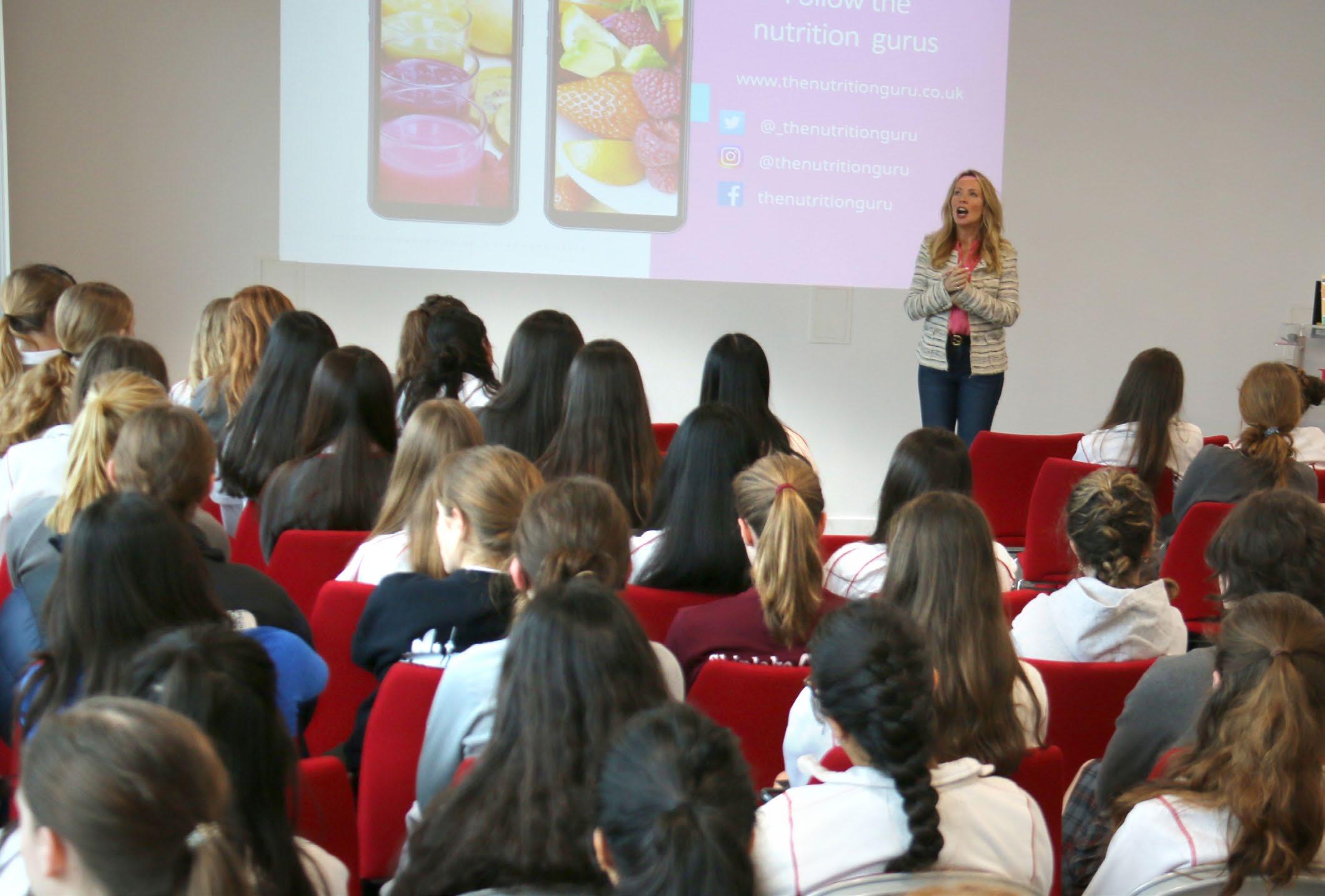
As part of a whole school approach, Life Advice (PSHE) develops the qualities and attributes pupils need to thrive as individuals, family members and members of society. Our programme, which combines RSE (Relationships and Sex Education), Wellbeing and Careers education, makes a significant contribution to pupils’ spiritual, moral, social, and cultural (SMSC) development, their behaviour and safety, and the School’s statutory responsibility to promote wellbeing.
It enables pupils to recognise, accept and shape their identities, to understand and accommodate difference and change, to set boundaries with confidence, to behave with integrity and respect towards others and themselves, to manage emotions with a greater understanding of mental health, and to communicate constructively in a variety of settings. Developing self-awareness, an empathy for, and an ability to work with others helps pupils to form and maintain good relationships, develop the essential skills for future employability and better enjoy and manage their lives.
Weekly timetabled lessons are delivered by Form Tutors, the School Nurse, the School Counsellors, Peer Mentors and external speakers during the timetabled lesson on a Wednesday afternoon and through the morning Form Time. Additional content is delivered through the academic curriculum, particularly in subjects such as Computer Science, Philosophy, Religion and Ethics, History and Biology.
Teaching RSE is a statutory requirement. In Middle School, RSE sessions are delivered by an external provider as part of a bespoke programme which responds to our needs, grows organically and addresses changing trends when required. Parents may exercise the right to withdraw their daughter from any Life Advice lessons in which RSE is taught by writing to the Head Mistress, though they do not need to enter into details in this correspondence. Their daughter will be able to opt back into these lessons three terms before their sixteenth birthday.
• Coping with change, managing anxiety, coping strategies
• Who am I? My influences; peer pressure and belonging
• Visit from the School Counsellor
• Defining and achieving my dreams and goals
• My online identity and external speaker on online safety
• Positive qualities of my healthy relationships
• Getting on and falling out with my friends
• Introduction to RSE: anatomy and puberty
• Introduction to Careers
• Session with Peer Mentors on boundaries
• Executive Function: effective study skills.
• Lean in Girls programme covering topics such as:
• Putting values into action
• Leaning into strengths
• Challenging stereotypes
• Reframing failure
• Embracing risk-taking
• Setting bold and healthy goals
• Drug education: Understanding drug; Tobacco and nicotine; Alcohol and risk
• Belonging and community: Identity and bias; Discrimination and bullying; Constructive disagreement
• External speaker: Safety when travelling to/from school and on public transport
• Careers talk: gender stereotyping
• Digital literacy and online safety
• External speaker on self-esteem and body confidence
• Lessons on: vaccinations and healthy food choices; periods and sport; teen skincare; and body image and modifications
• Friendship and bullying: empathy, bystanders, challenges and influence
• Financial Literacy: mobile phone products and Pocket money debate
• RSE talks: committed relationships; families; and parenting
• Session with Peer Mentors on being popular versus being liked.
• BrainWaves: the science of happiness, my teenage brain, building good sleep habits, dealing with harmful content online
• Climate anxiety and the environmental impact of AI; change, loss and grief
• Food for thought: making healthy choices
• Digital literacy
• Drug education: vaping, alcohol and cannabis, managing risk and influence
• Peer Mentor session on preparing for Upper School
• GCSE subject options talks
• RSE: Digital relationships, respectful boundaries and consent
• Self-defence training with external provider
Whole-school and Section assemblies incorporate many of the overarching concepts of PSHE education, and Societies such as Pride Club, Amnesty International and Feminist Society also play a part in delivering several PSHE key themes.
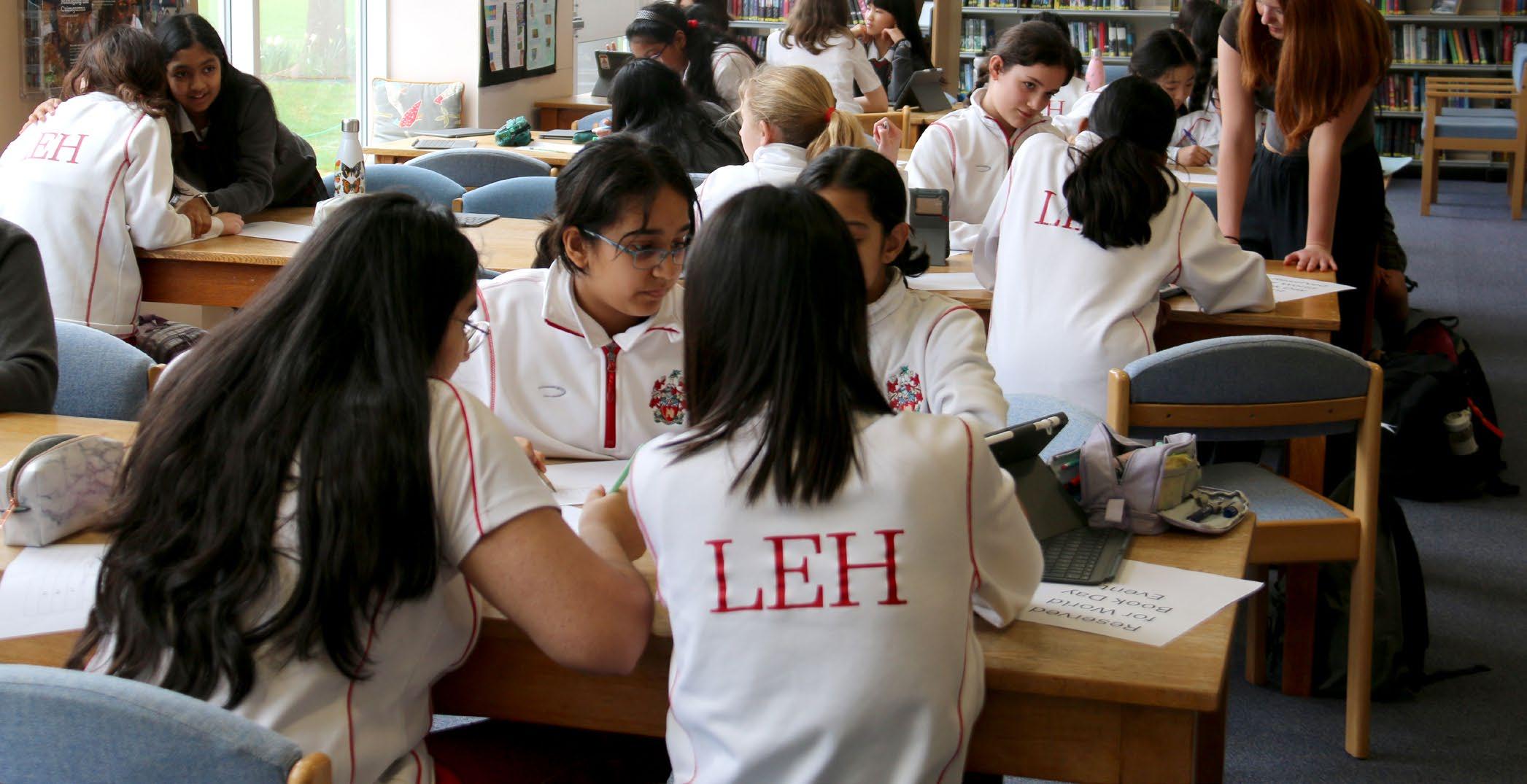
The library provides resources for our students to read for both pleasure and purpose. It is an area that supports the learning of the curriculum through access to information. Students can borrow a variety of books. Non-fiction that will allow them to build upon items they have learned in class as well as expanding their knowledge in areas of interest. Fiction that can bring new perspectives to areas they have learned about, for example a fictionalised account of the suffragist movement in history or science fiction that draws on real life science. All reading helps to improve vocabulary which in turn supports learning in all subject areas. Reading lists can be found on the Library SharePoint pages and the library catalogue.
The library provides a wide range of online resources to assist students with homework and research. Brittanica is a great starting point for any project offering thousands of up to date, curated, and curriculum-relevant articles. The Day gives daily news headlines linking them to curriculum areas. Students can find a list of all our online resources and how to access them from the Library SharePoint pages.
Thirds and Lower Fours have a fortnightly reading lesson as part of their English classes. Other subject areas make use of the space when completing research projects. The library is open to all year groups before school, during break and lunch and after school for private study. A librarian is available to assist with searching and finding resources.
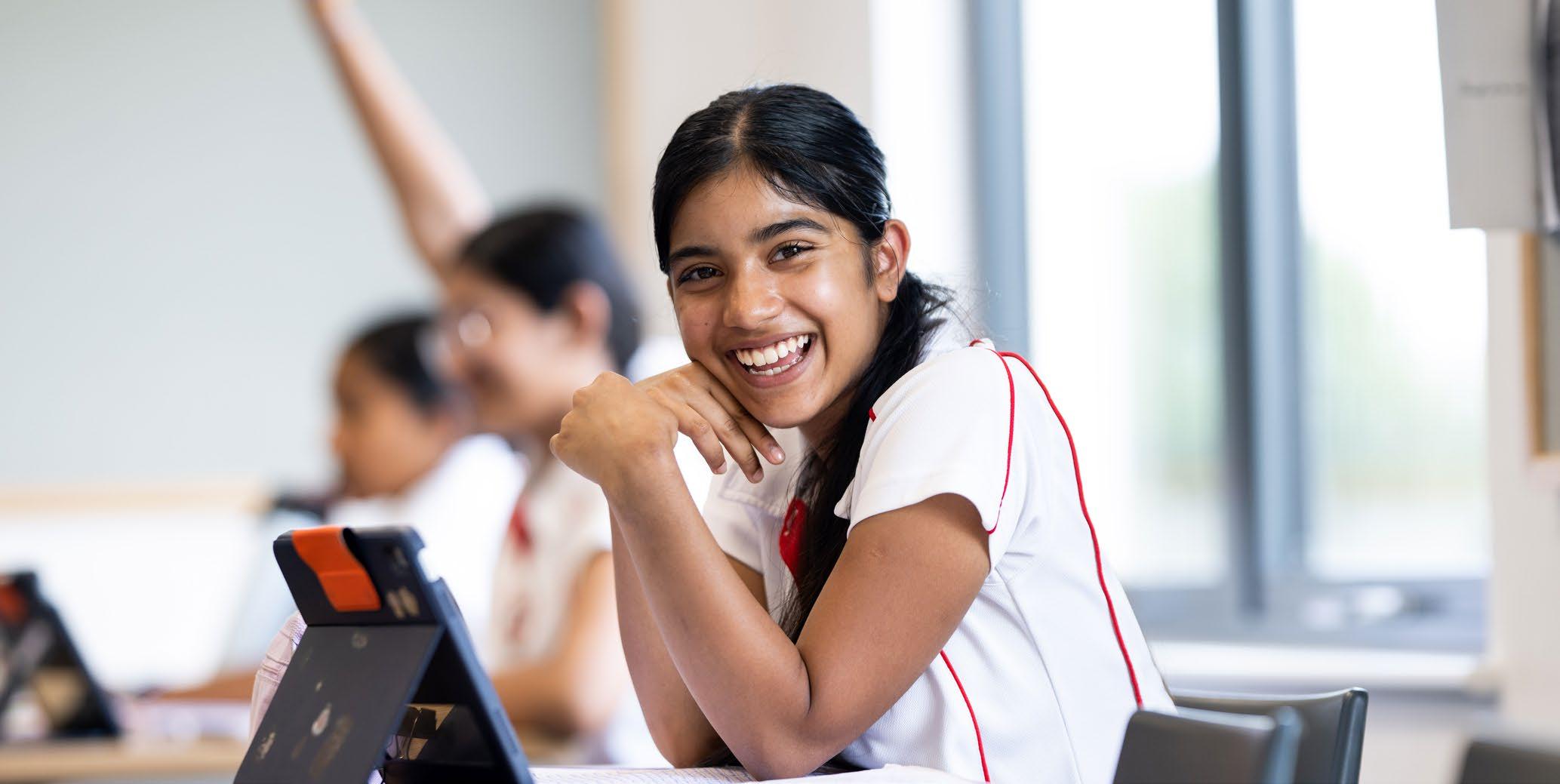
QAll pupils in Thirds and Lower Four participate in Q, our Academic Enrichment Programme, designed to equip them with the key skills and mindset needed to thrive both academically and personally.
During the Autumn Term, pupils take part in a structured programme focusing on oracy, debating, and public speaking. In the Spring Term, they rotate through a series of four engaging workshops:
Digital Detectives: The Information Investigation – This workshop explores the ethics of AI and teaches pupils how to conduct effective research in the digital age.
Visual Literacy – Pupils critically observe, analyse, question, and interpret images, developing an essential skill in today’s increasingly image-saturated world.
Brainwaves Toolkit – A short course that delves into the science behind wellbeing, offering practical strategies for managing worry and challenging negative thoughts.
Problem Solving – A hands-on course designed to develop teamwork, communication, and leadership through a range of scenario-based challenges.
In Lower Four, girls undertake The Be Bold Project, an inhouse initiative designed to nurture intellectual curiosity and independent learning. Each pupil completes a 2,000-word essay on a topic of her choice, accompanied by a presentation and production log. The project will empower our girls to take ownership of their learning, while developing essential skills such as research, project management, critical thinking, and time management. By engaging in an independent project on a subject of their choice, girls will extend their knowledge beyond the classroom, cultivating a deeper passion for learning and the important habits of scholarly inquiry.
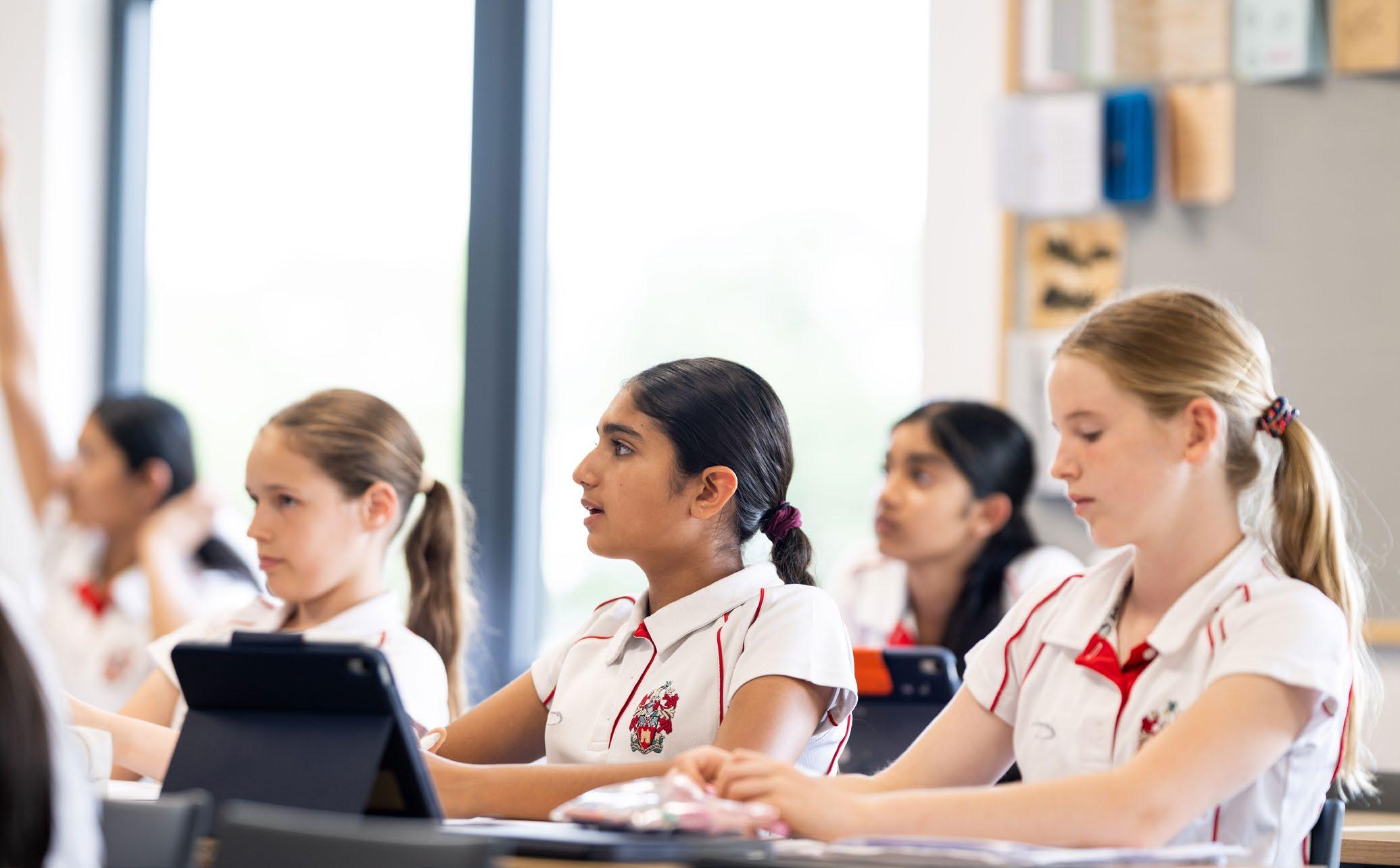

“Leaders have cultivated an environment that promotes pupils’ personal development, wellbeing and selfconfidence alongside academic excellence.”
ISI Review 2025